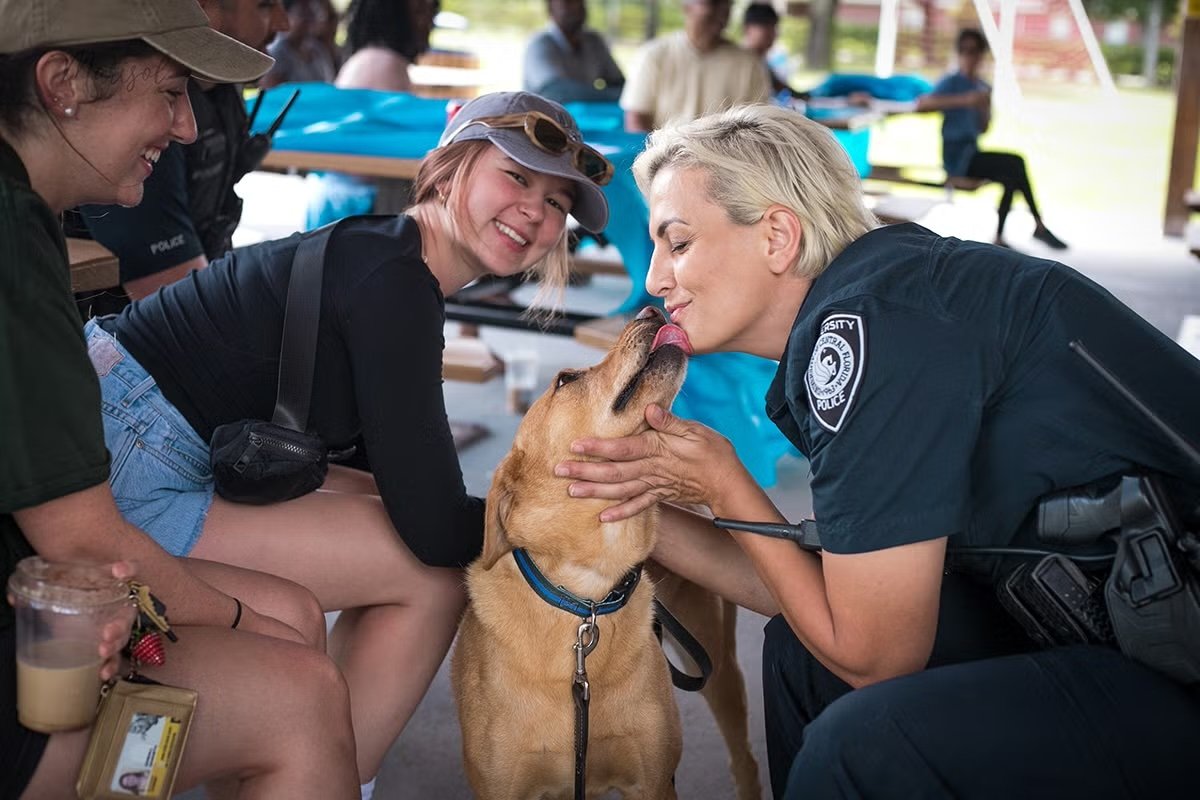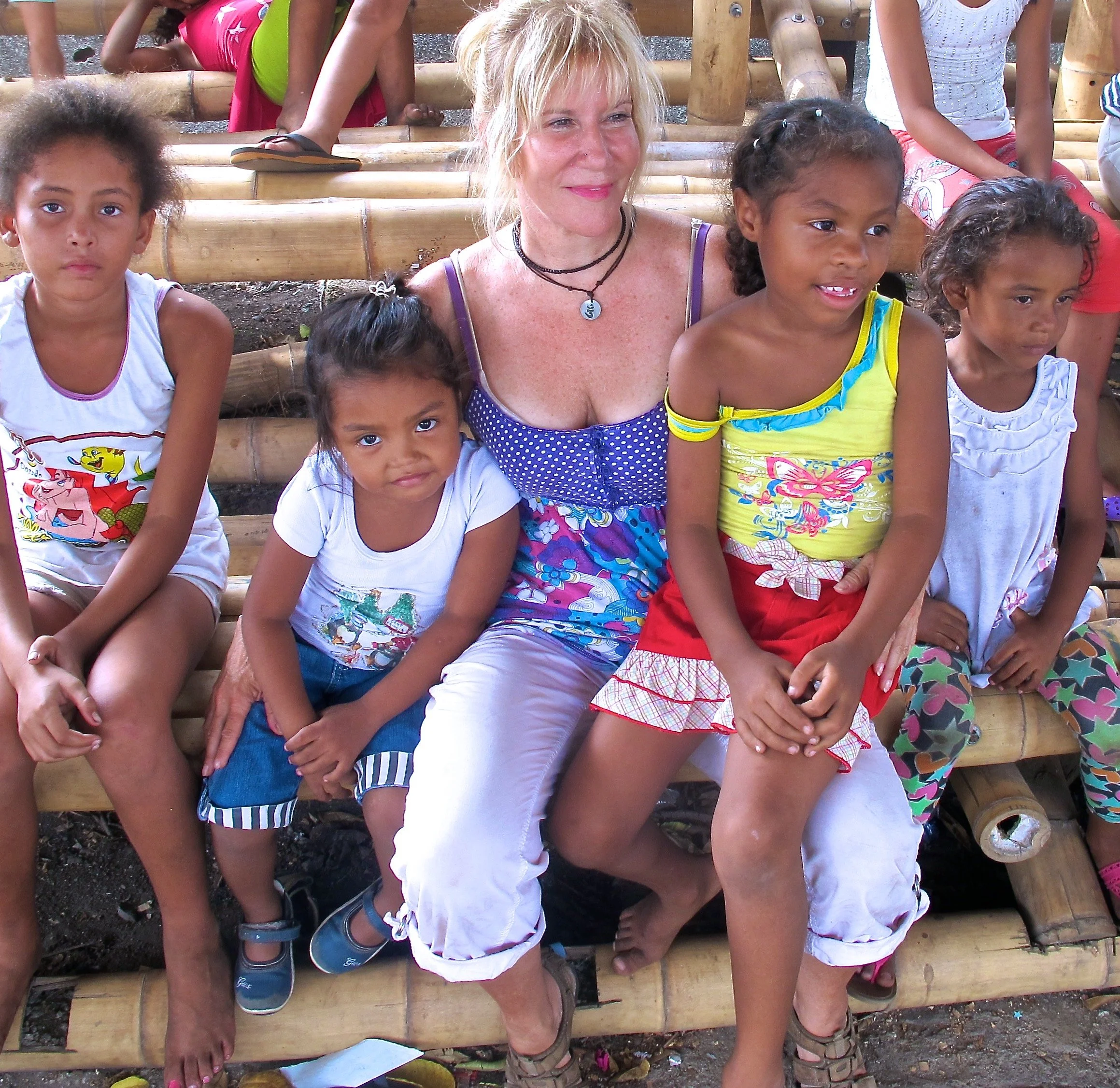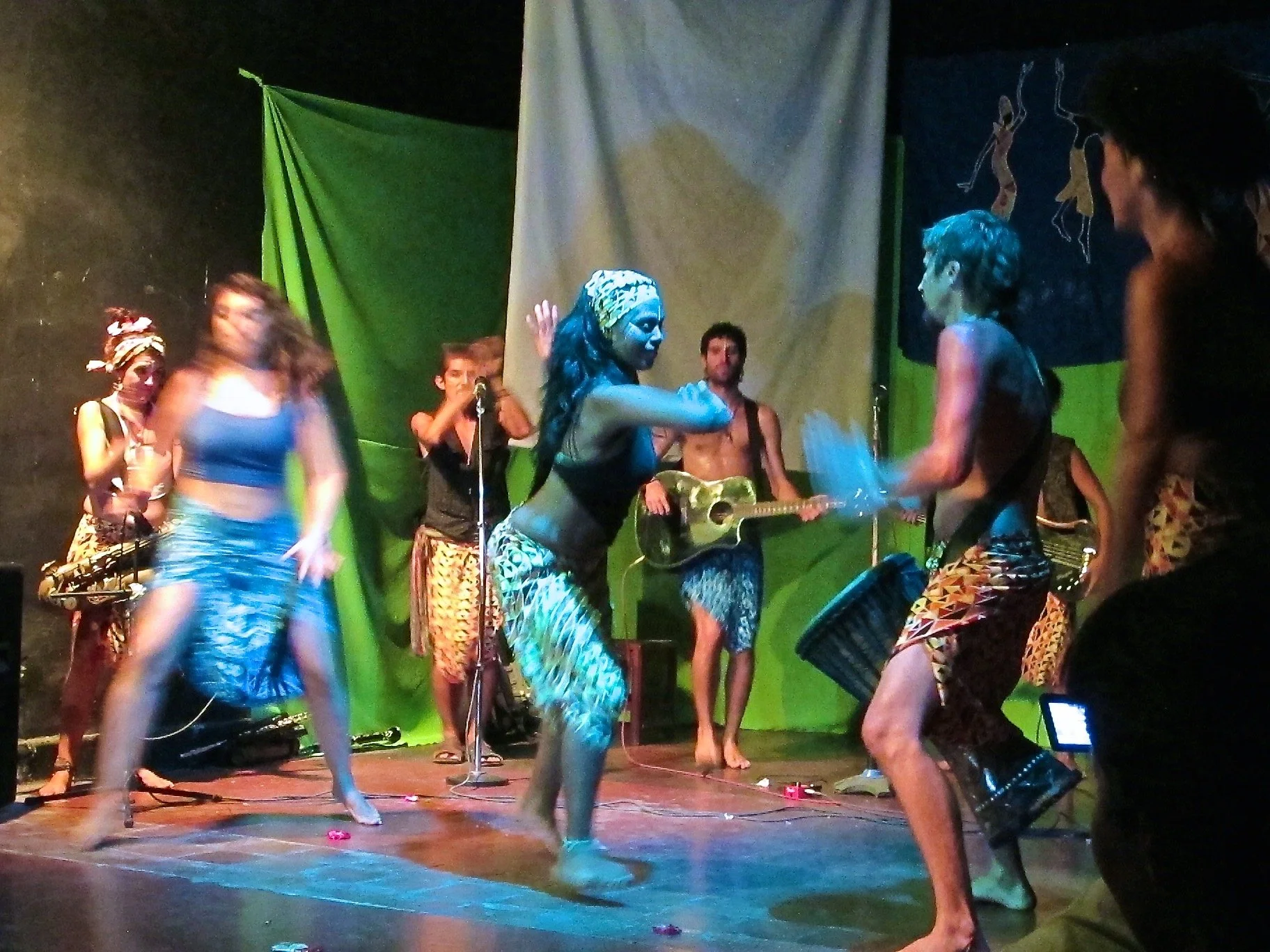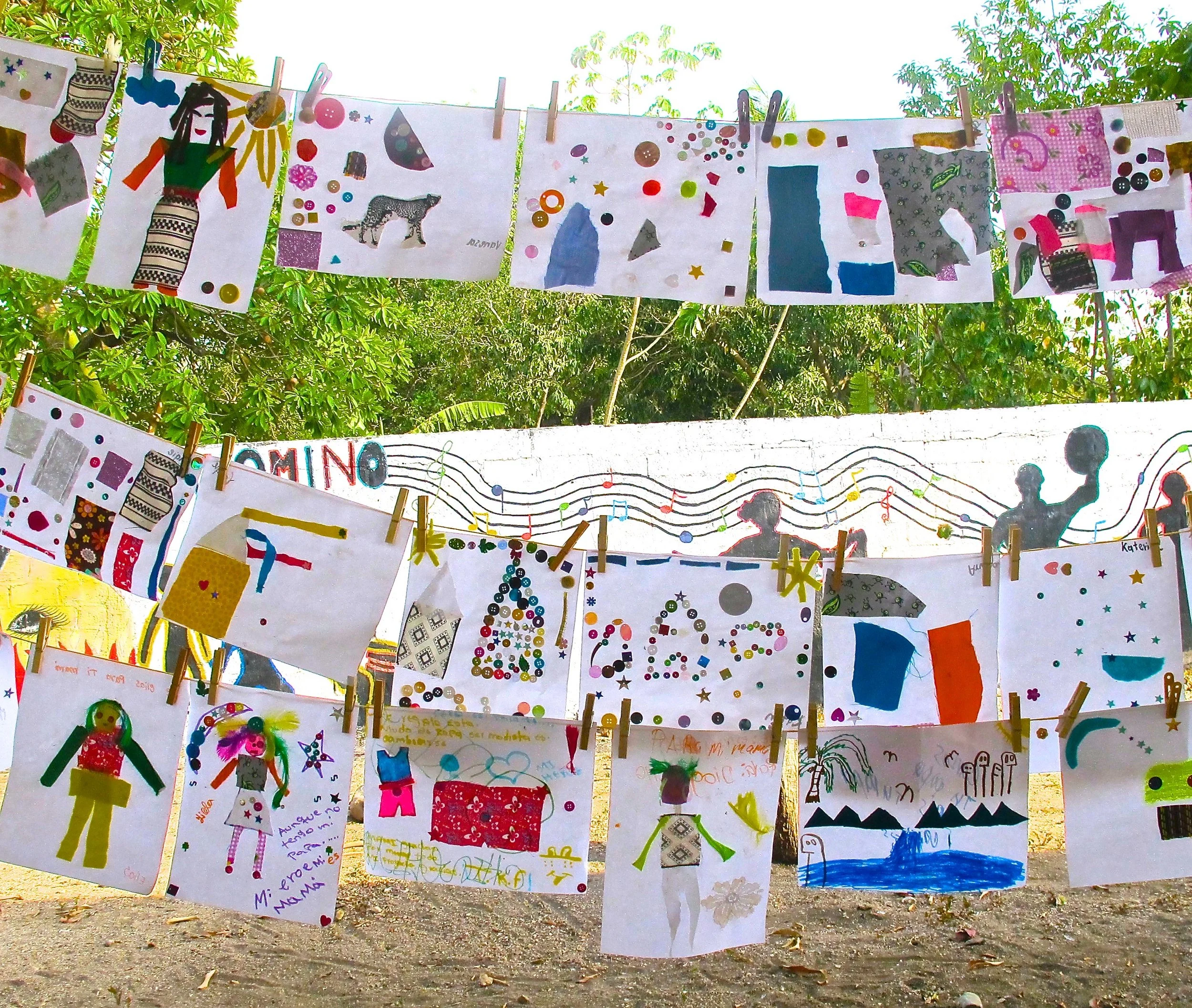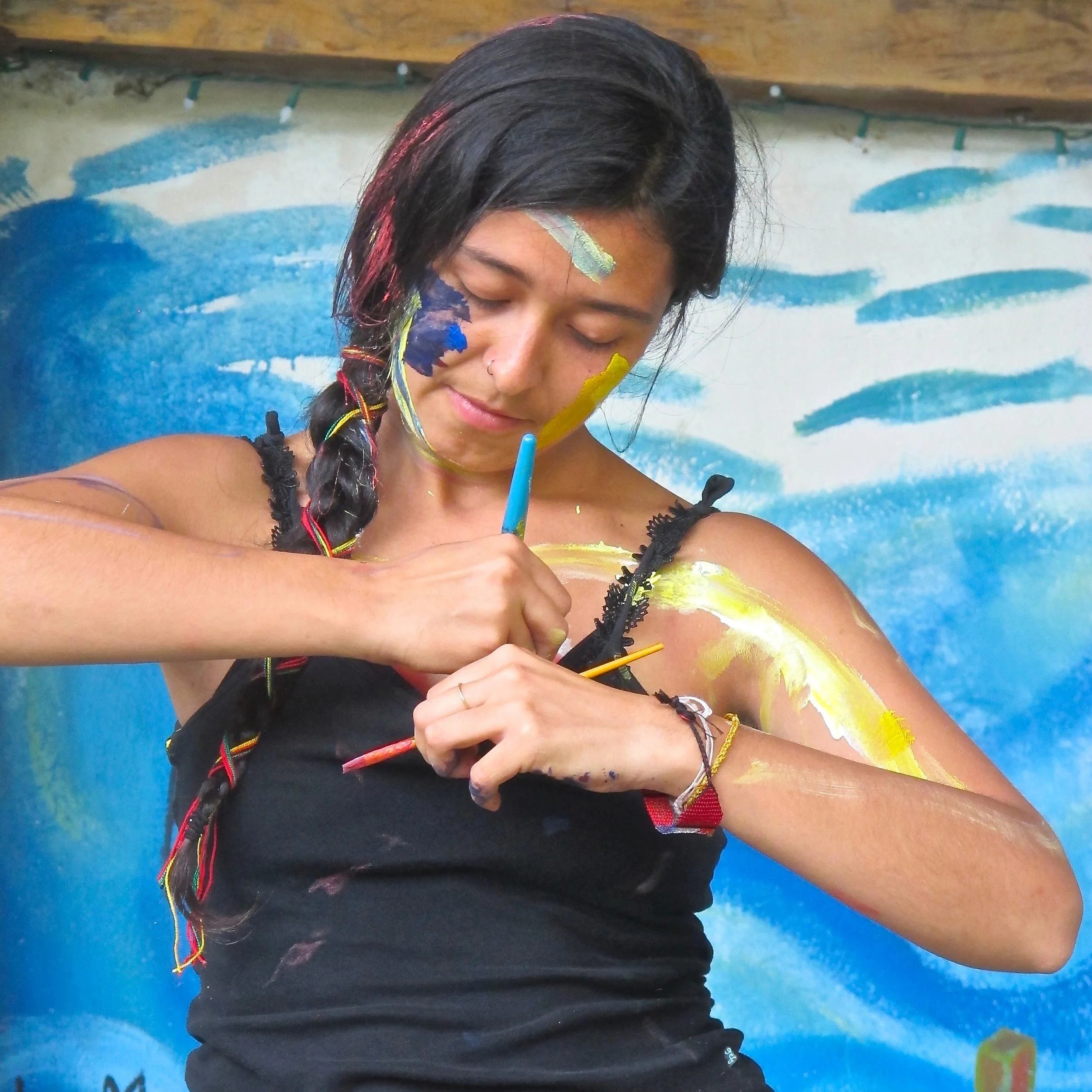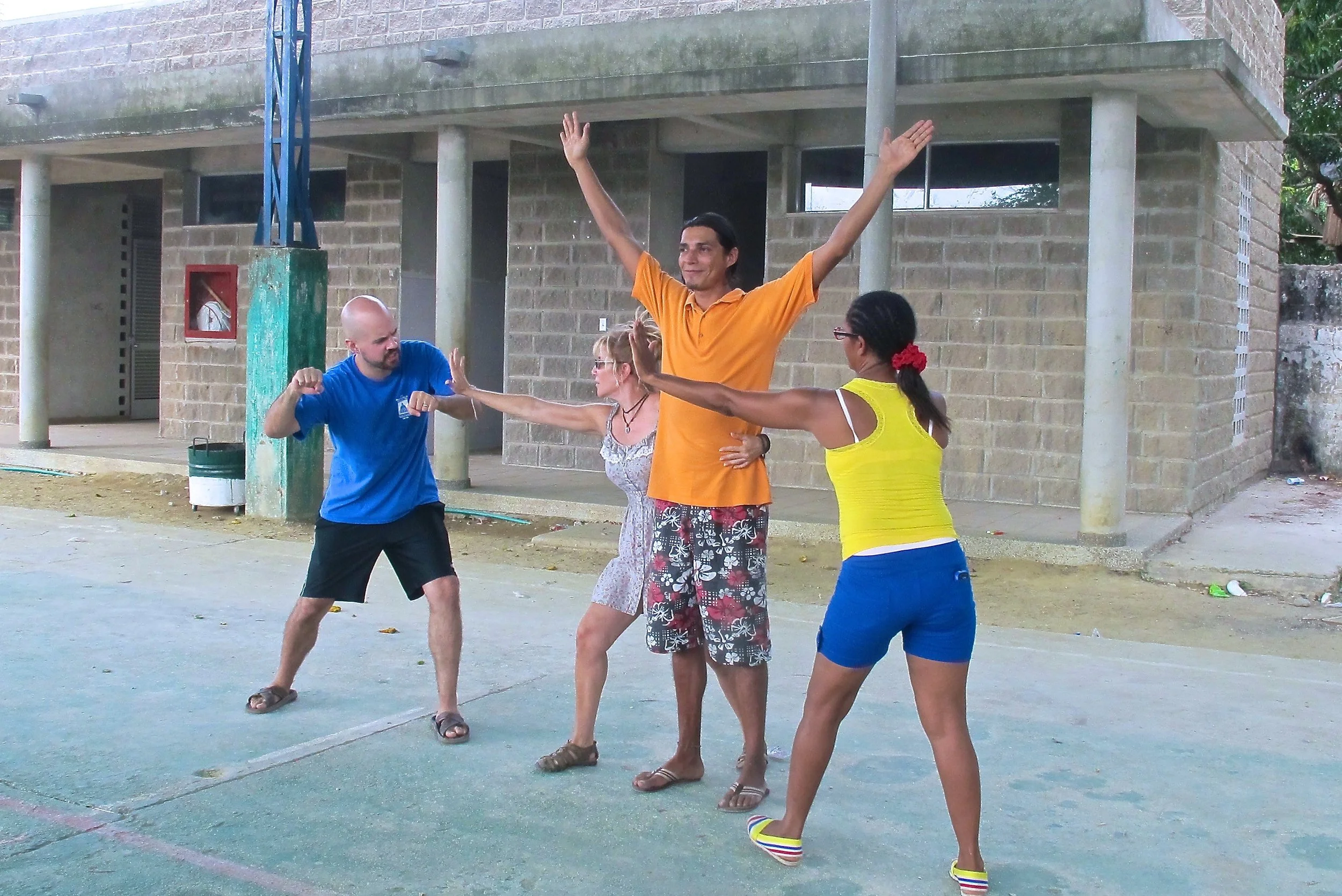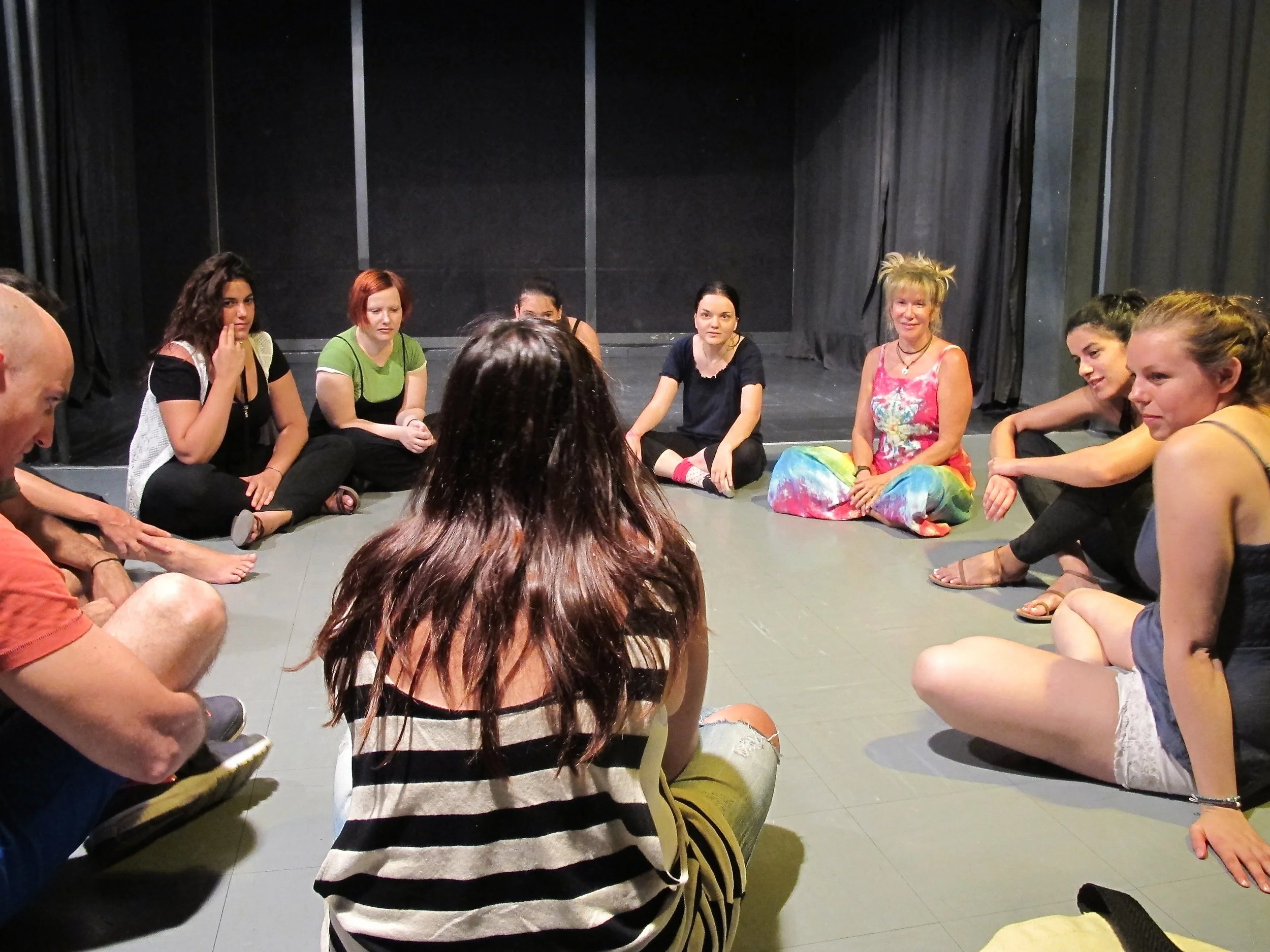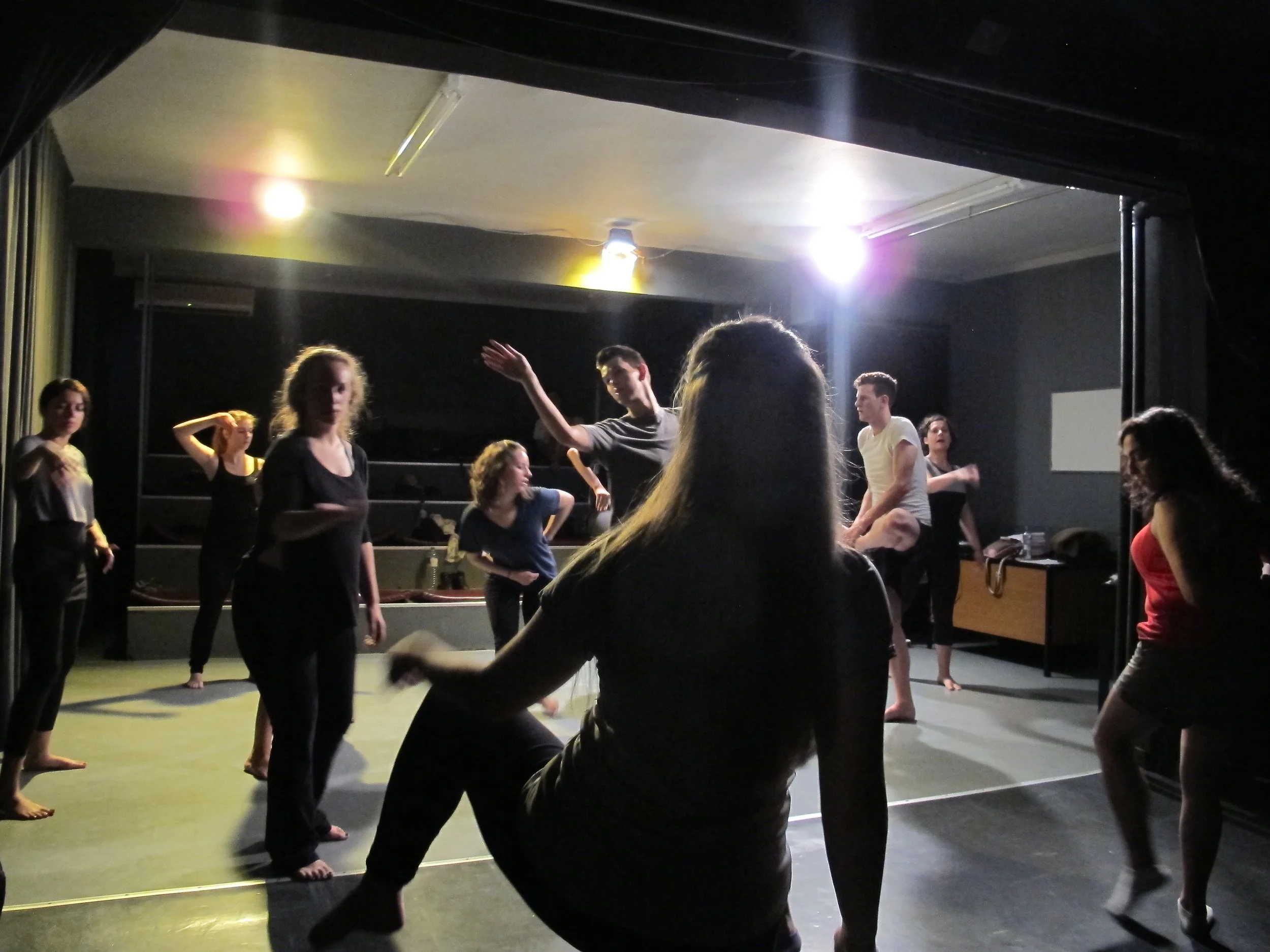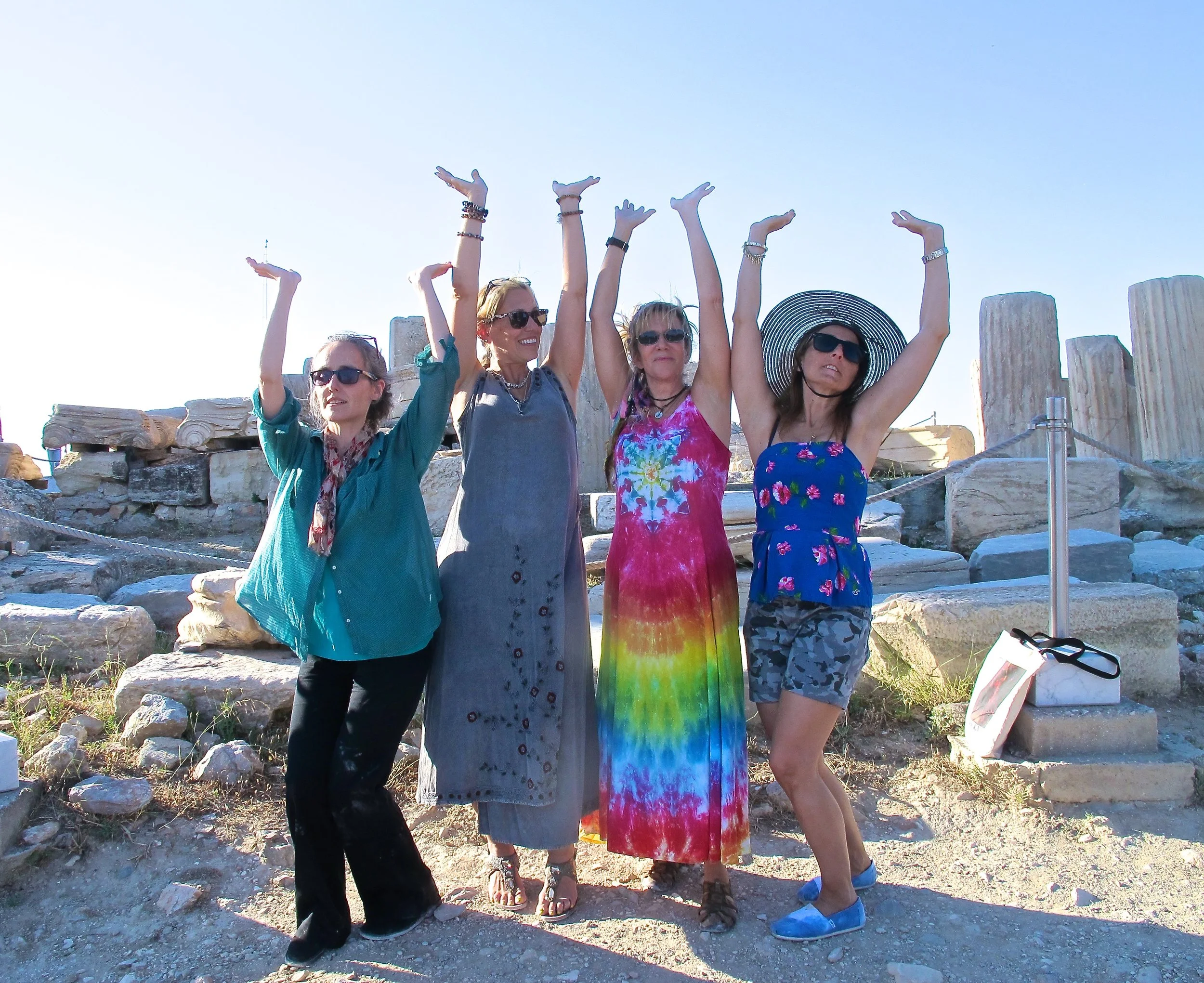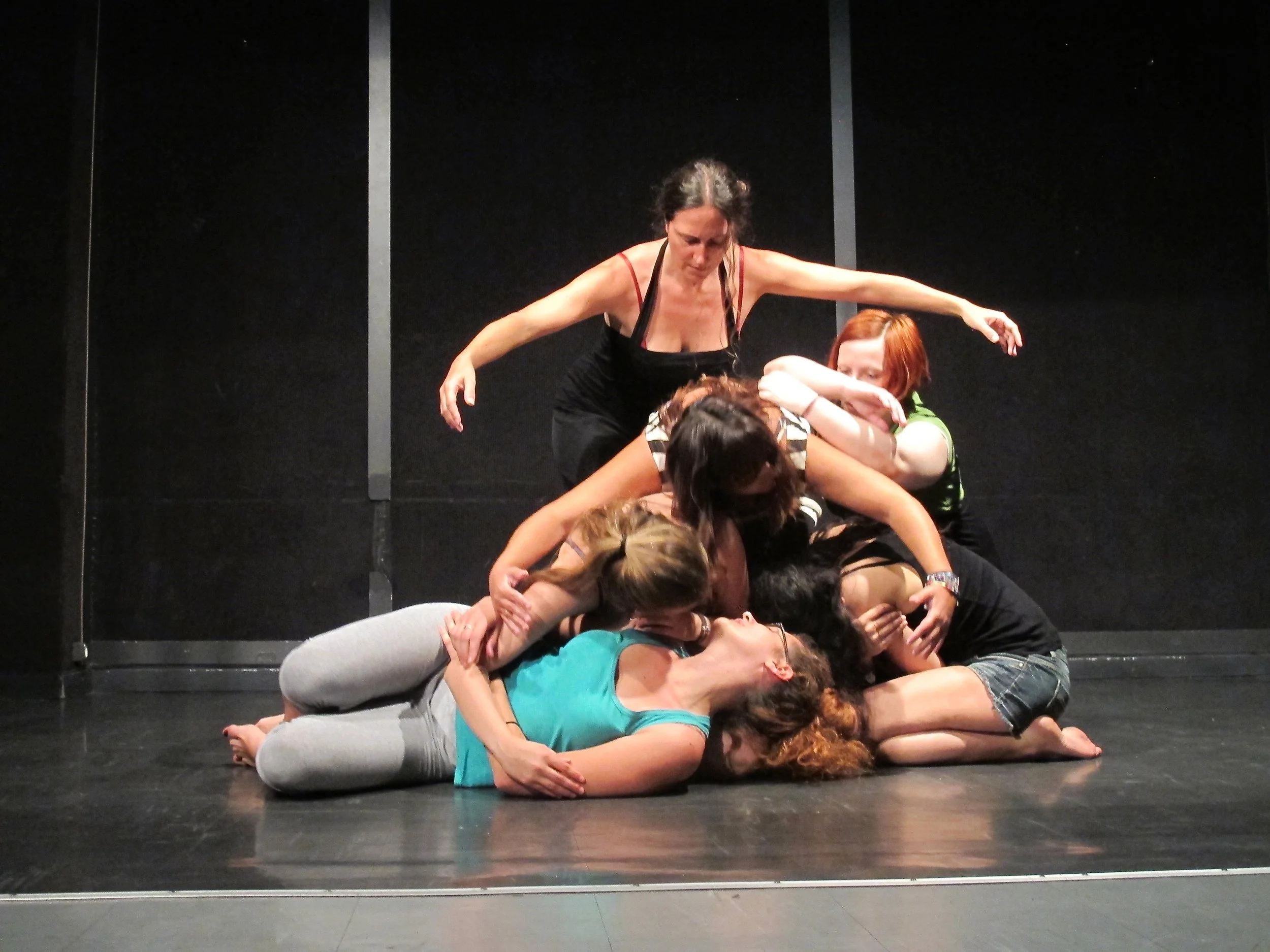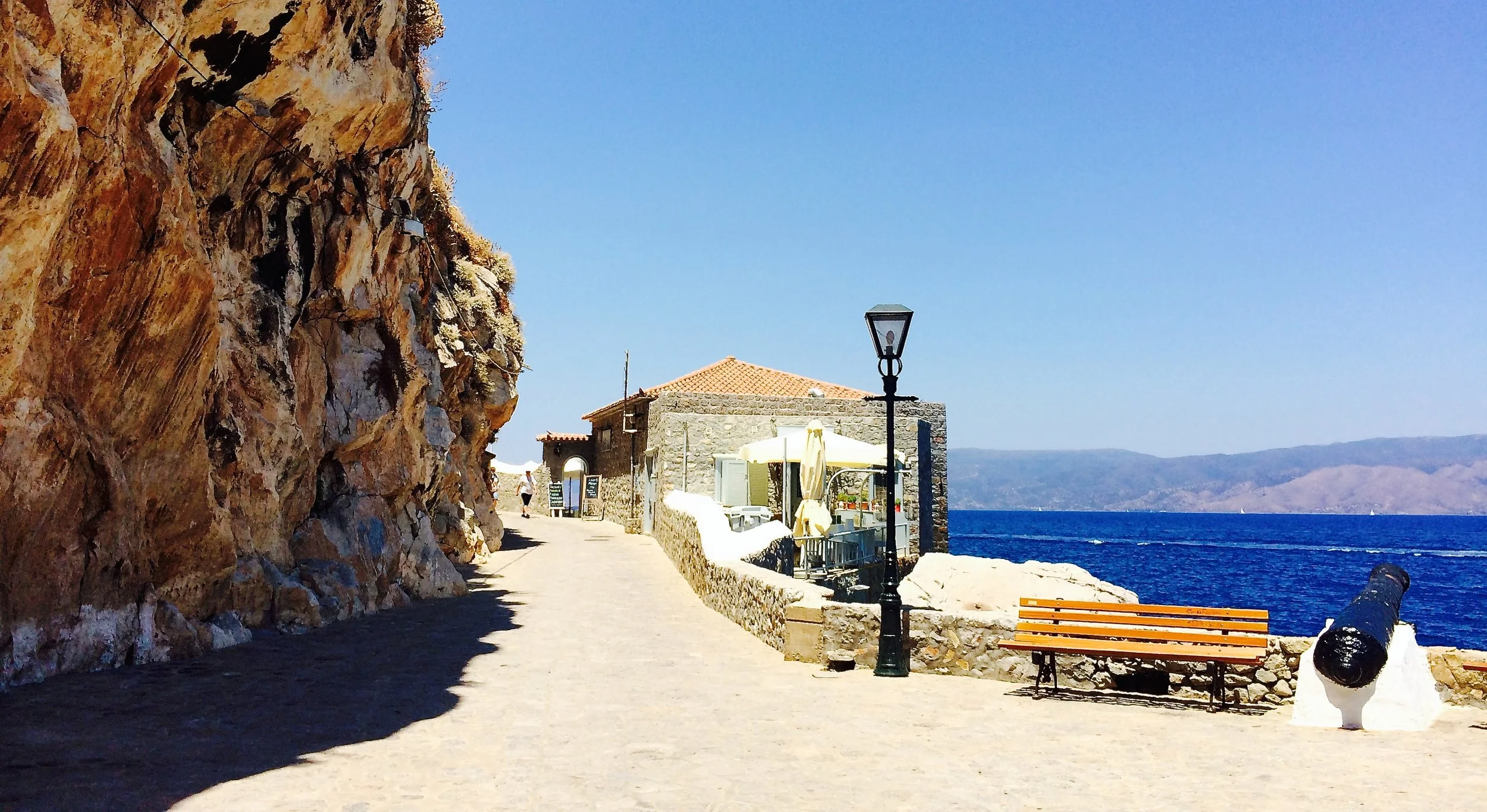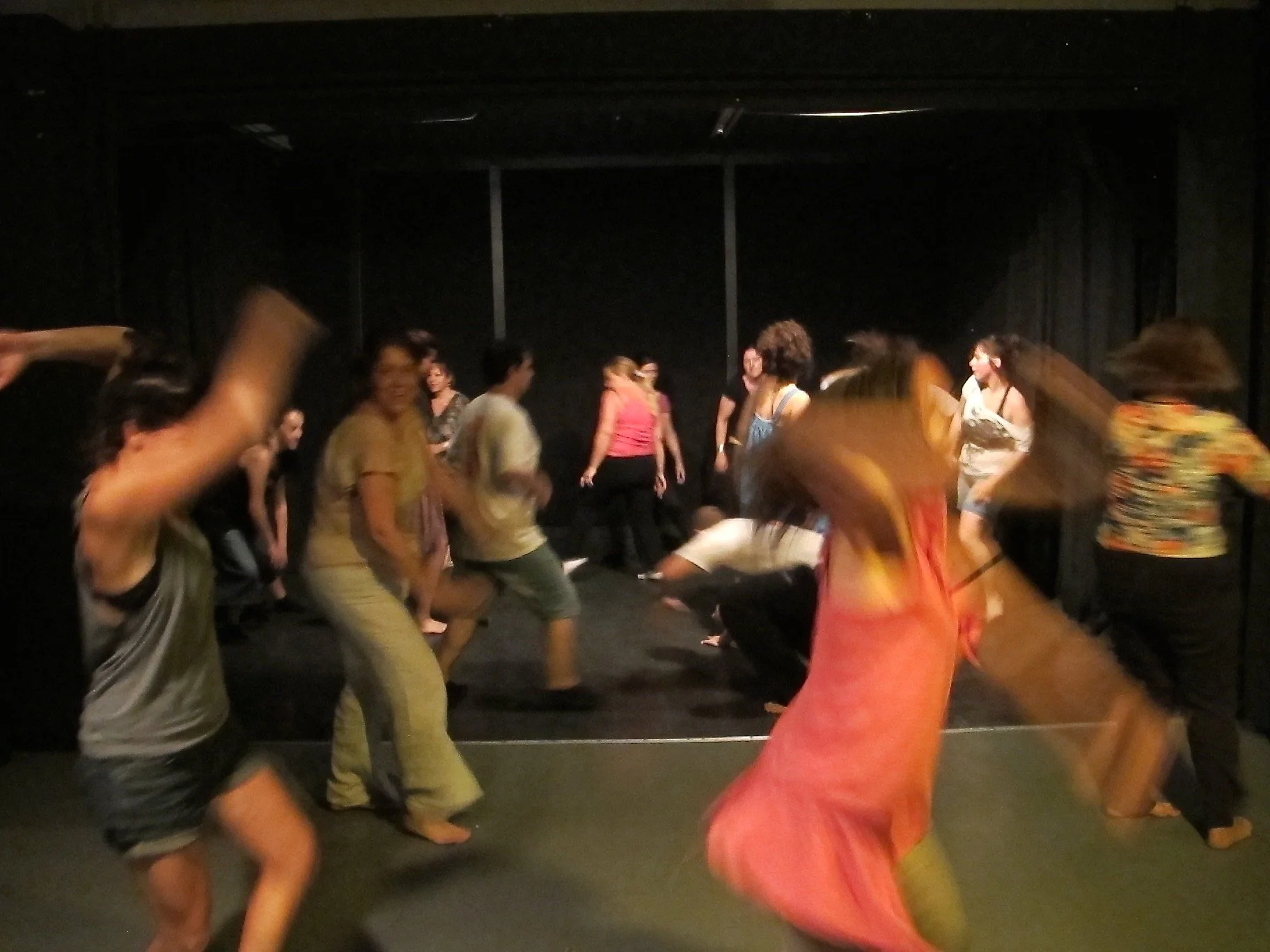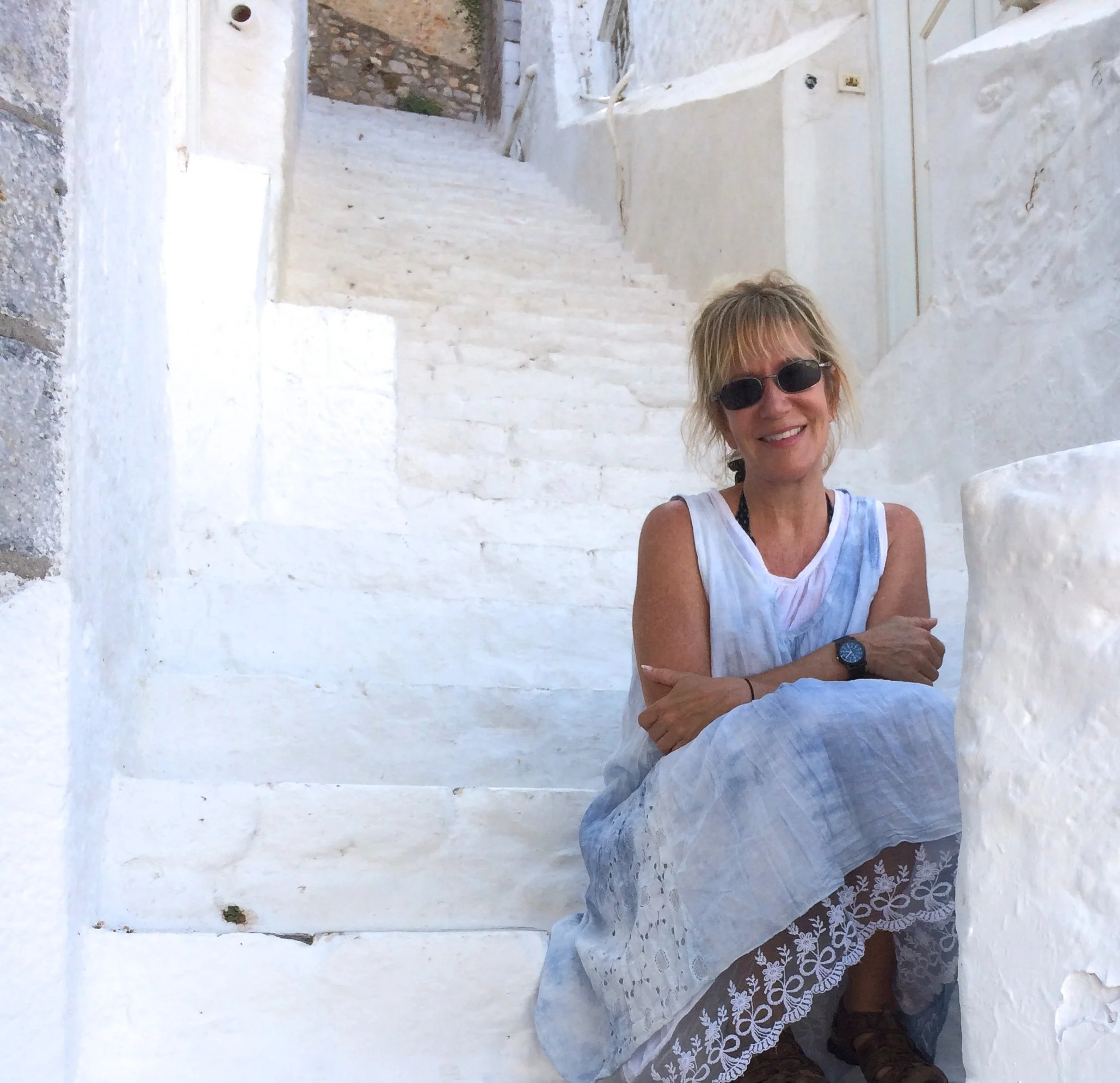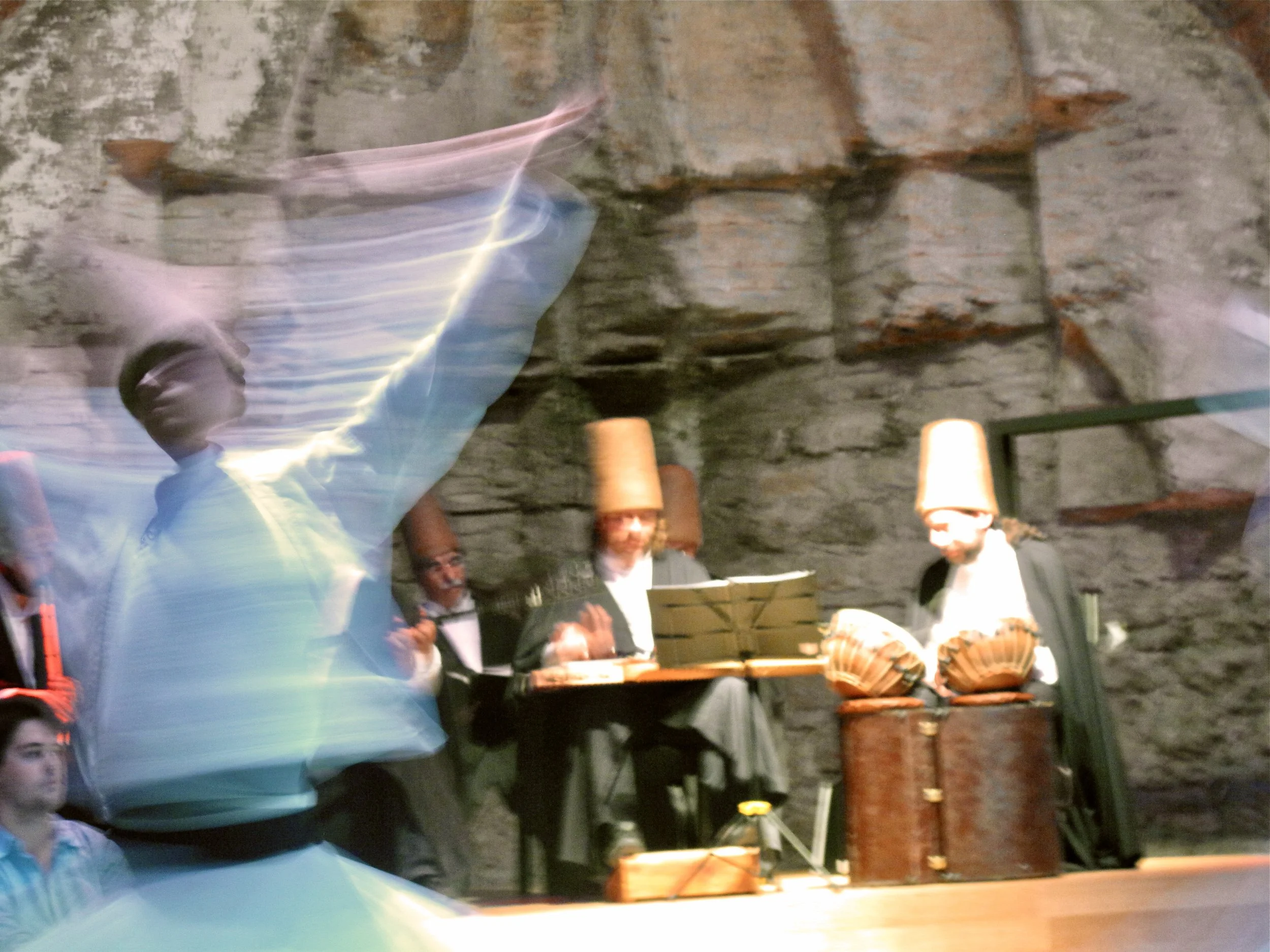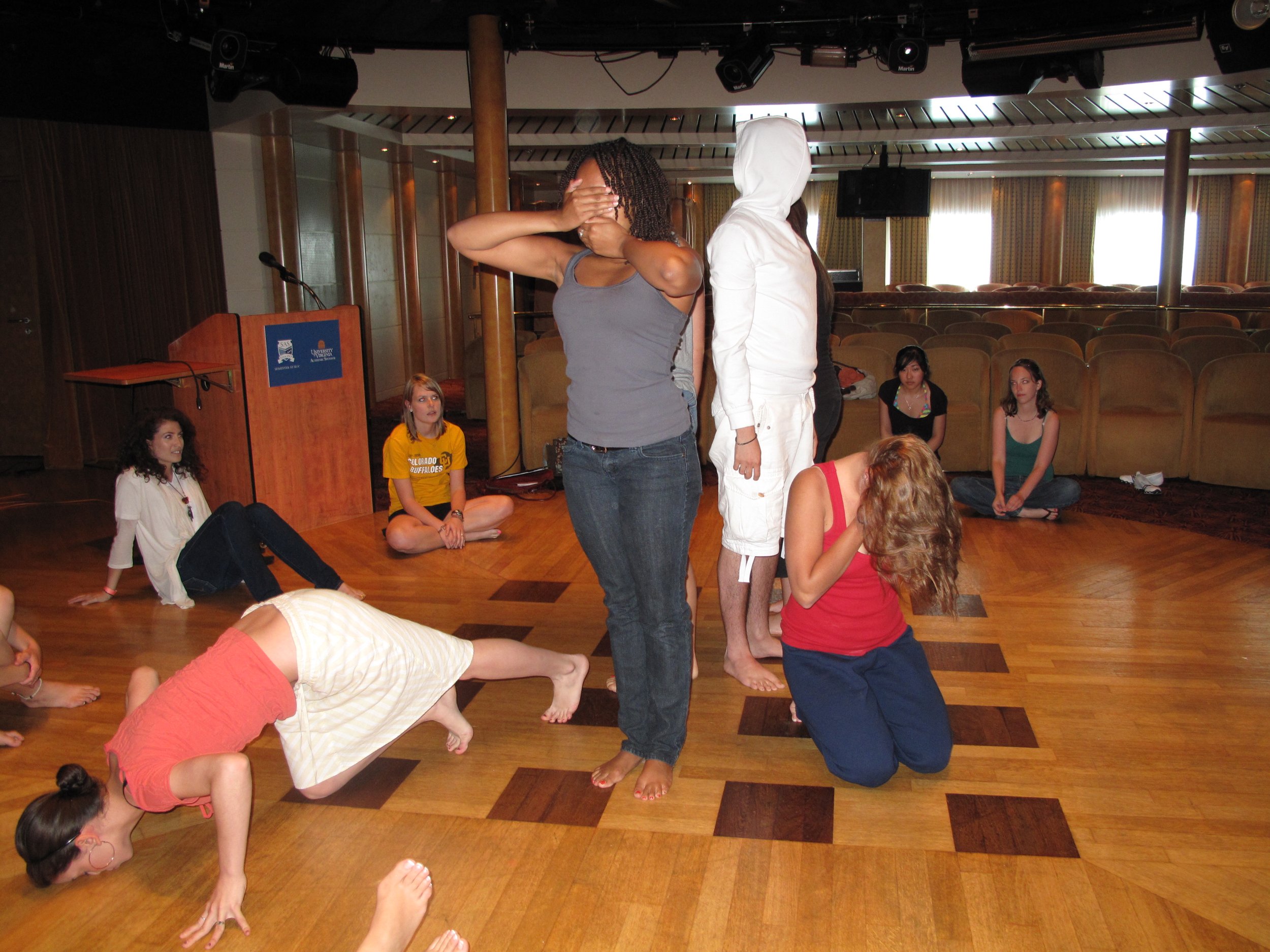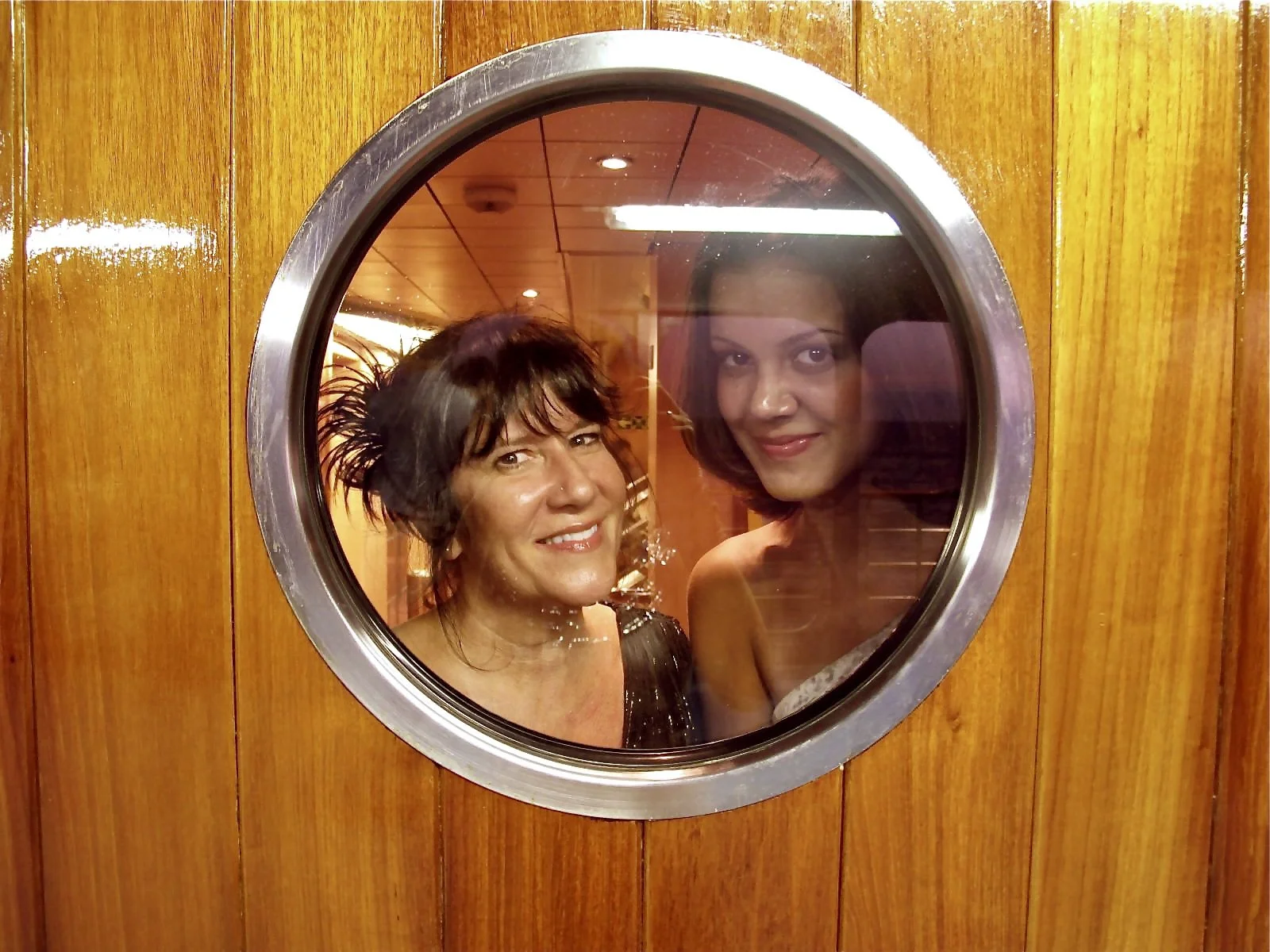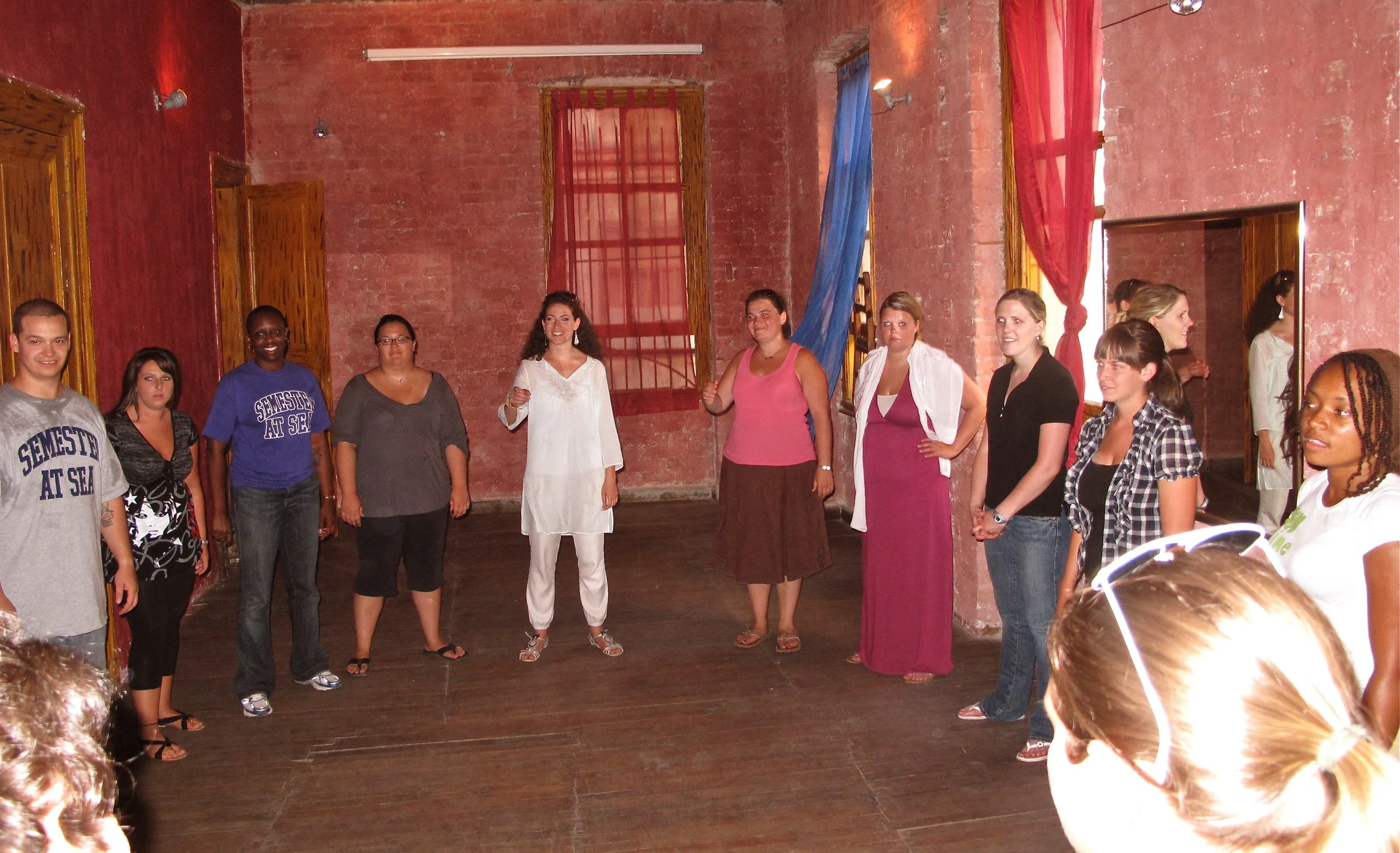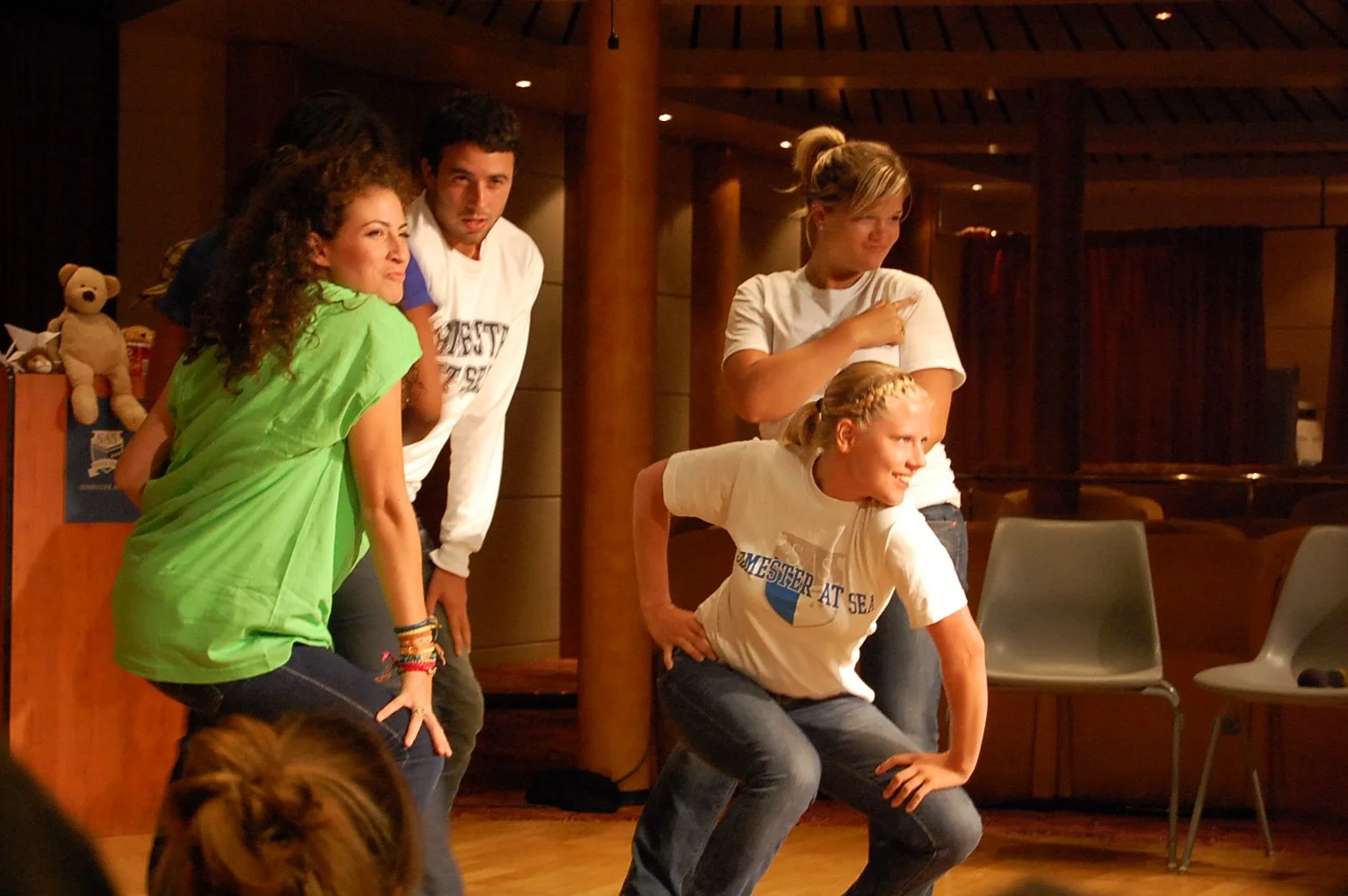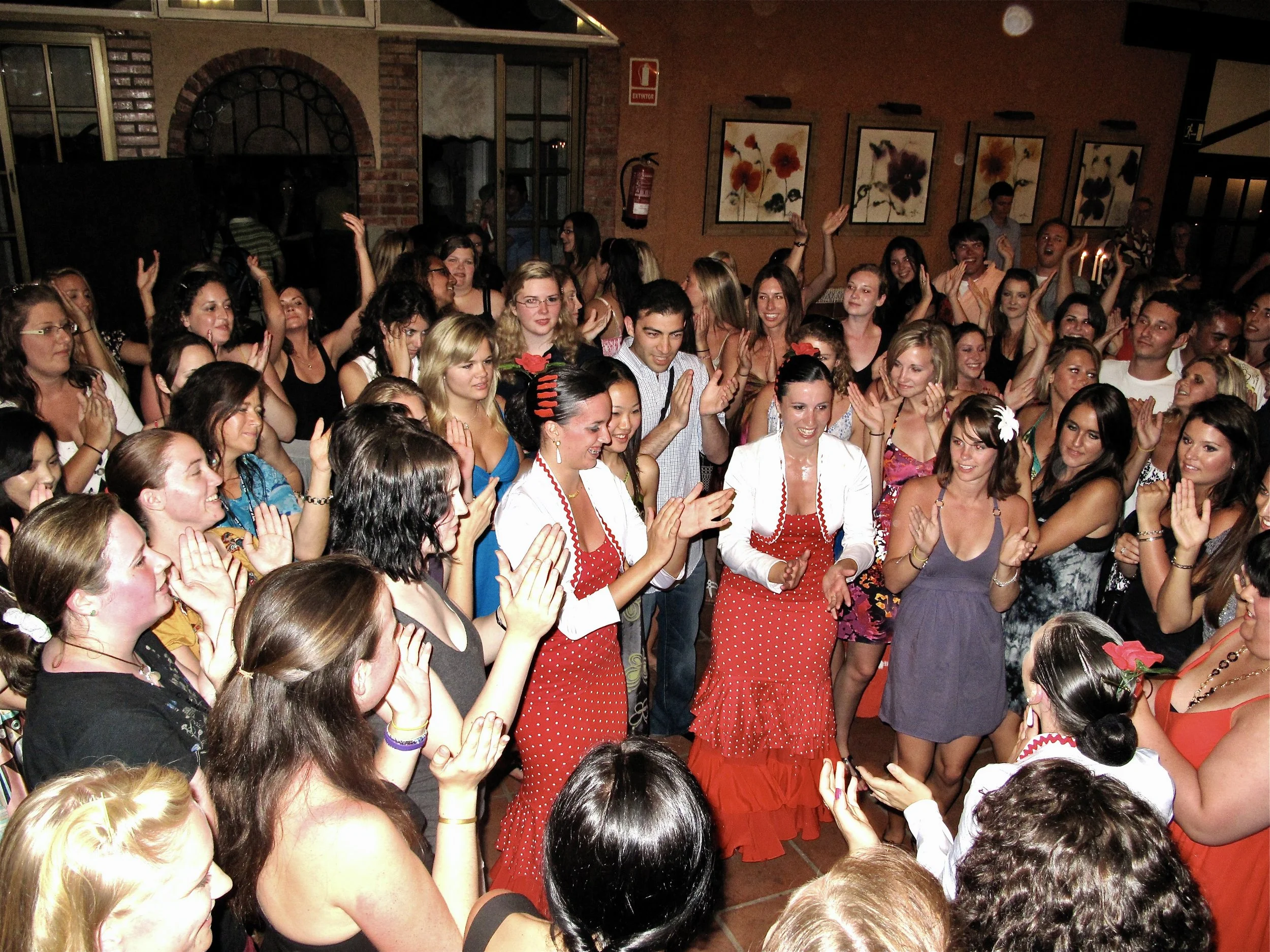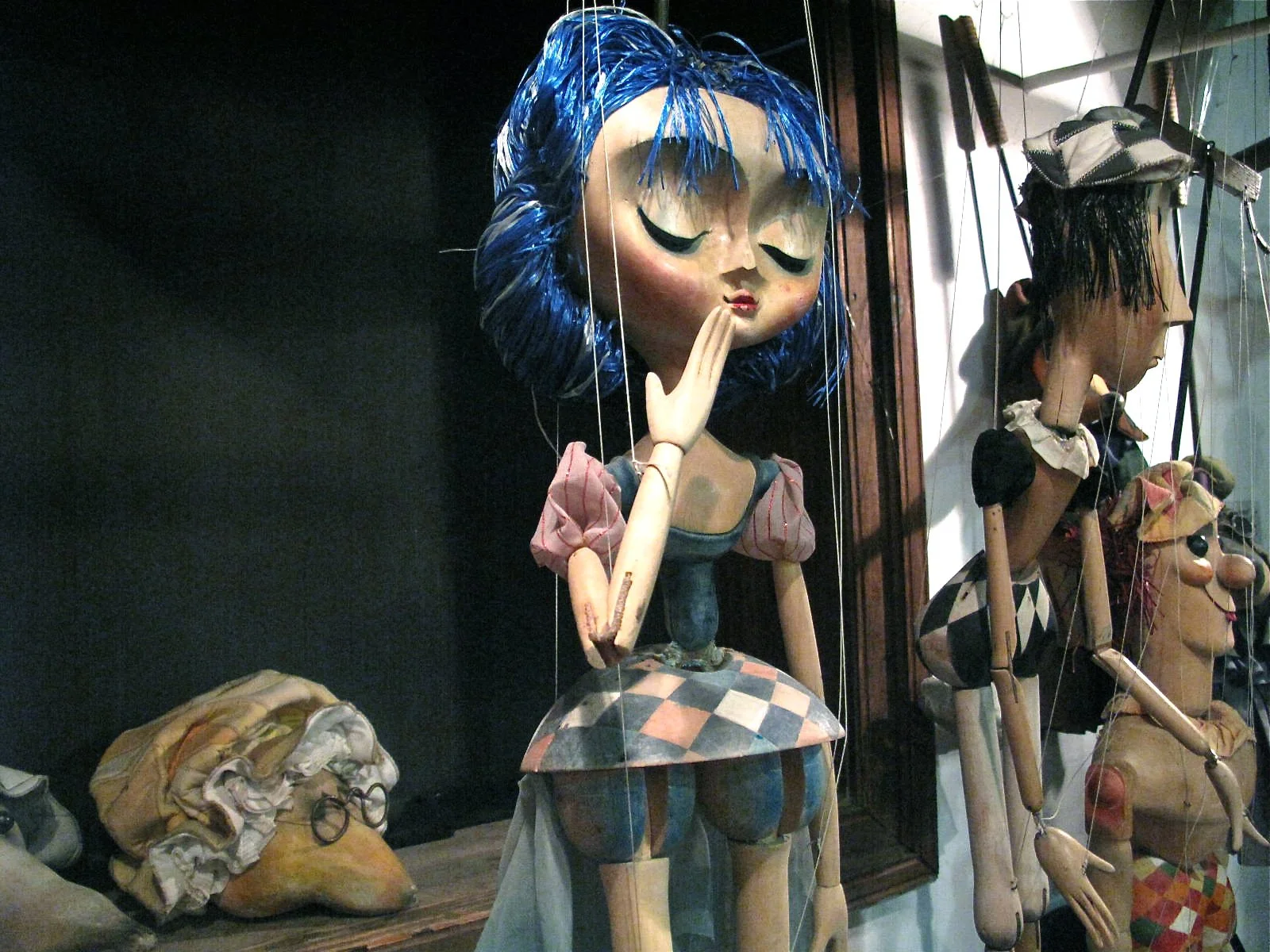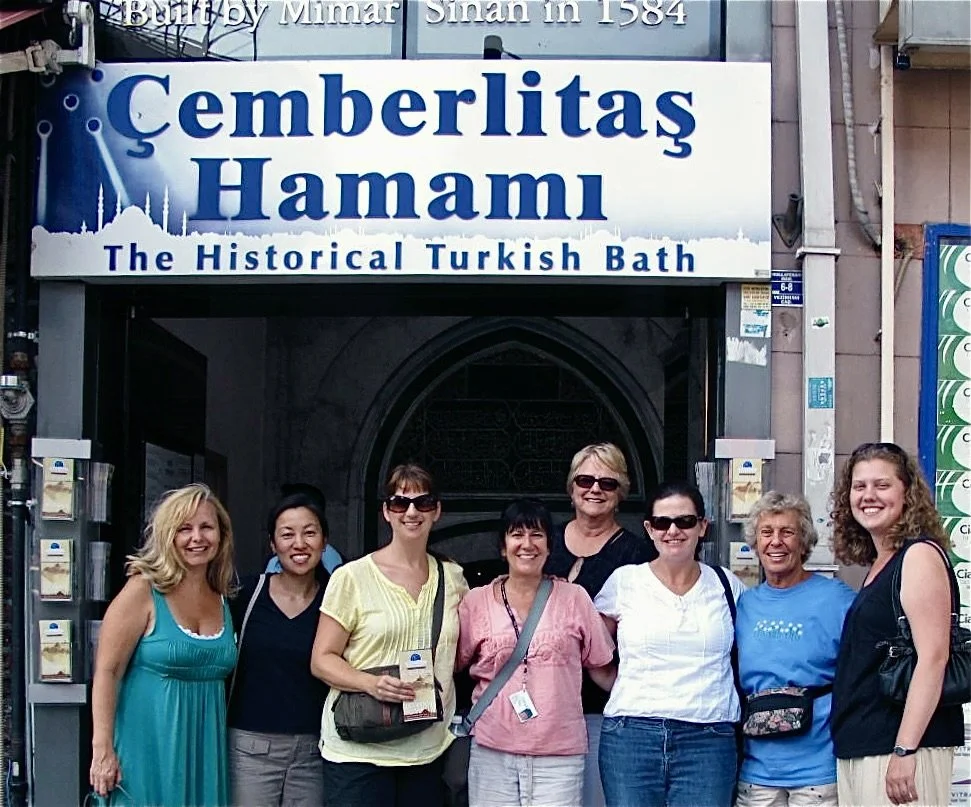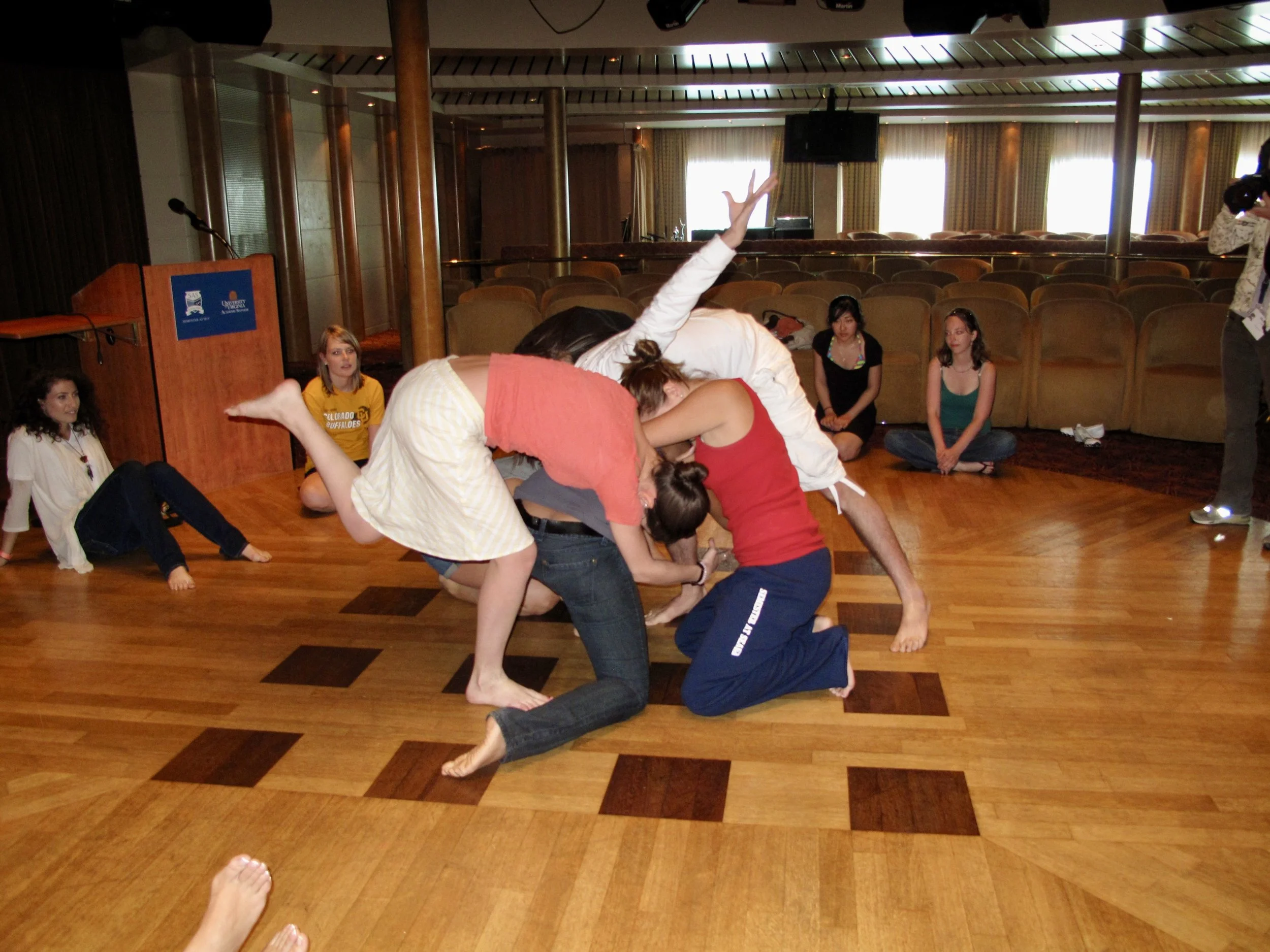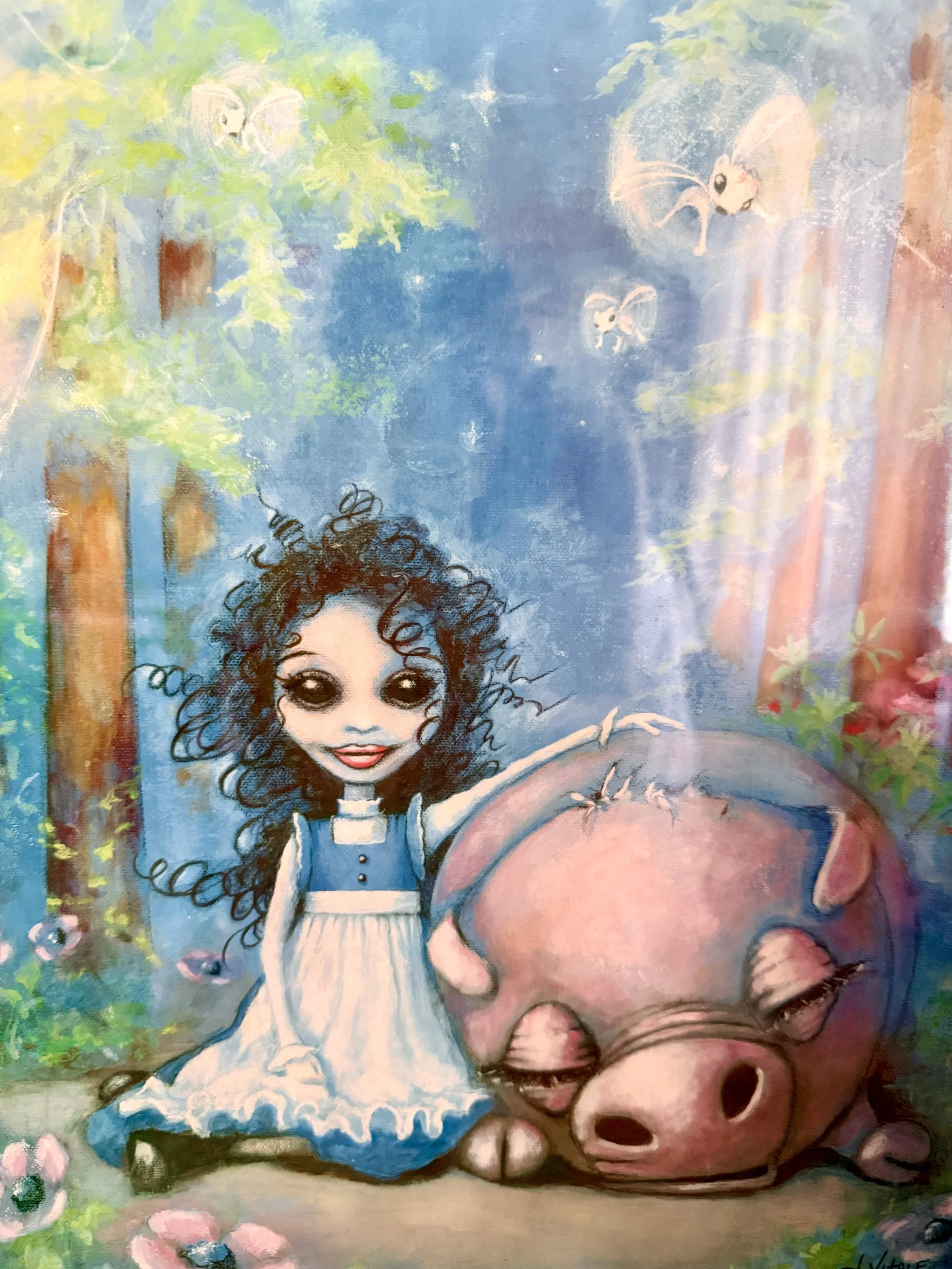Video
PLAYBACK UCF
Playback Theatre is a form of improvisational storytelling that invites audiences to share their stories and then experience them "played back" in ways that honor story and teller. Let’s watch…
A look inside an Acting for Non-Majors class utilizing theatre for social change inspired assignments such as personal performance art and Playback Theatre.
Welcome to the Revolution: The Future of Creativity (keynote)
THRIVE!
Utilizing well-being theory, scientific empirical research, and the expressive arts, we explore the art and science of how we thrive!
An international collaboration between Art in Odd Places and two honors classes I taught at UCF (Creative Processes and Theatre Survey.
Digital Portfolio
A video submission in partial fulfillment of the capstone project for Thrive .
by Betty Elliott
Music: Walking on Sunshine/Katrina and the Waves
Creativity Keynote hosted on Zoom. Playback UCF and the Burnett Honors College Symposium (2020)
Theatre for social change work in Colombia with Imagine Action.

Radio
POD
FLORIDA ROUNDTABLE
A one-hour news and public affairs radio program
On this edition of the Florida Round Table Reagan and Yaffee interview Sybil St. Claire who is the theatre director at the University of Central Florida. She discusses how she uses different approaches to teaching including theatre for social change.
You'll also get our extended take on Florida politics in the Sunshine State and beyond.
We'll see you on the radio on one of our 80+ stations. Listen to the "Florida Round Table" podcast NOW! 5/31/18.
Title: Playback UCF Brings Patient Stories to Life Through Live Performance and Broadcast at Arnold Palmer Hospital
In a moving blend of theatre, technology, and healing, Playback UCF recently partnered with Arnold Palmer Hospital for Children to bring patient stories to life—live from the Ryan Seacrest Studio and broadcast throughout the hospital.
Using a simple QR code, pediatric patients and their families were invited to share personal stories—moments of courage, fear, hope, or humor—from the comfort of their hospital rooms. These stories were then interpreted and performed live by Playback UCF, a troupe of University of Central Florida theatre students trained in Playback Theatre, a form of improvisational storytelling that uses metaphor, music, movement, and symbolic props like fabric to reflect the emotional heart of real-life experiences.
The performances were staged in the Ryan Seacrest Studio, a state-of-the-art broadcast center located inside the hospital. From there, the stories were performed live on camera and broadcast in real time to patient rooms across the hospital. The recordings were also archived, allowing families to view them later.
“Playback Theatre invites us to step into someone else’s story with empathy and artistry,” said Dr. Sybil St. Claire, UCF faculty member and founder of Playback UCF. “It’s about honoring each voice with creativity, care, and immediacy.”
Whether transforming a child’s fear of surgery into a storm calmed by song, or turning a memory of home into a dance of fabric and light, each performance offered more than entertainment—it offered connection, meaning, and recognition.
For patients navigating uncertainty, the opportunity to see their own story reflected with care and creativity can be deeply affirming. “It made me feel like my story mattered,” one young participant shared.
Through this innovative partnership between Arnold Palmer Hospital and UCF, and the unique platform provided by the Ryan Seacrest Studio, Playback UCF is demonstrating how the performing arts can play a vital role in healing, belonging, and hope.
UCF News | Stories of Impact + Innovation | Orlando, FL
Health & Medicine
The Performing Arts at UCF Empowers Community Members Living with Aphasia
June is Aphasia Awareness Month, which recognizes the more than 2 million people living with the condition that impacts their ability to communicate.
By Zenaida Gonzalez Kotala | June 28, 2022
A project to help community members with Aphasia culminated in a celebration called Aphasia Family Field Day held this past April at Lake Claire. The day brought together UCF student volunteers, UCF faculty, stroke survivors and their caregivers, the UCF Police Department, and Playback UCF.
Apartnership between the School of Performing Arts, the School of Communication Sciences and Disorders, and the Department of Psychology at UCF is helping improve the lives of people living with aphasia.
Aphasia is a condition that stems from a brain injury, most commonly the result of an accident or stroke. People with aphasia may struggle with oral and written language, such as finding the words to express themselves. While all people forget the word they are trying to think of occasionally, this may be a daily struggle for people with aphasia.
The National Aphasia Association (NAA) estimates there are 2 million. Only 15% of the population know about the condition, according to a 2020 poll the NAA conducted. To the untrained eye, the symptoms are often mistaken for intoxication or an intellectual disability. Aphasia is neither.
Seva Reilly, a student earning her bachelor’s in communications sciences and disorders, took a theater class in 2020 and quickly realized the potential the performing arts could have on some of the families she works with at UCF’s Aphasia House. The house is a clinic staffed by UCF communication sciences and disorders faculty. Graduate students work as student clinicians and undergraduates may volunteer to work with community clients. Reilly is the president of the Adaptive Community, also known as UCF Aphasia Family. This is a free community group for individuals and their families living with aphasia.
“I took Professor (Sybil) St. Claire’s Theatre for Social Change honors course in 2020, where she introduced us to the Playback Theatre,” Reilly says. “I loved how Playback shared and honored the stories of the audience, and I invited them to perform for Aphasia Family. The collaboration has only grown since then, and I was thrilled to be part of (the production) Advocating for Aphasia and its mission to increase awareness of aphasia among first responders.”
St. Claire, a lecturer at UCF since 2002, was eager to collaborate. She introduced Playback UCF to the campus community and has worked with the group for years as the faculty mentor. The troupe performs improvisational theatre where actors listen to stories from the audience and play them back using theatre, music, and metaphor. Her class focuses on how the performing arts can be used to support positive social change.
“People underestimate the power of art to impact lives,” St. Claire says. “There is often a sense of isolation and loneliness with aphasia, and it was only exacerbated by the pandemic. Playback UCF empowered participants to share their stories and build community. That’s the power of art. It can bring people together and heal in a broad sense of the word.”
The troupe performs on campus and throughout the community during the school year. Throughout the pandemic they also found ways to perform remotely.
As St. Claire and Reilly began chatting, they added Sage Tokach, graduate student in the theatre for young audiences program and artistic director of Playback UCF, to the team. Soon they had a project they named Advocating for Aphasia: Using the Performing Arts to Raise a Conscious Community, which was funded by a Pabst-Steinmetz Arts and Wellness Innovation grant. The goal was to empower those with aphasia to self-advocate and to educate first responders about the condition.
That project culminated in a celebration called Aphasia Family Field Day held this past April at Lake Claire on UCF’s main campus. The day brought together UCF student volunteers, UCF faculty, stroke survivors and their caregivers, the UCF Police Department, and Playback UCF.
Sybil St. Claire
A key goal of the project was to create an educational video designed to increase awareness among first responders. The team, which also involved graduate students, including film major Sherry Dadgar and performance major Sterling Street, worked together to create an educational video to be shared with first responders and organizations devoted to advocating for aphasia. The video was completed in May and is actively being shared as part of Aphasia Awareness Month, which concludes on June 30.
Sharon Pierson, an Orlando resident who participated in the project, said she was happy to be part of it.
“It means that I can share my personal experiences and how Aphasia has impacted my life,” Pierson says. “Also, to let others know that Aphasia is not the end of the world. It does not mean we are not smart people. In fact, we are very smart. It’s just unfortunate that we can’t get our words out the way we want them to come out.”
St. Claire also is preparing journal articles with the faculty team from the School of Communication Sciences and Disorders (Amy Engelhoven and Lauren Bislick) and the Department of Psychology (Megan Sherrod) about the project and what was learned.
“Collaborations like these, are powerful,” St. Claire says. “I’m proud we could come together to showcase how art can make a difference.”
As for Playback UCF, they are taking a break this summer, but plan to continue to perform in the community, on campus and with UCF’s Aphasia House again.
UCF Rising! Applied Bystander Prevention Workshop
Using Theatre for Social Change Techniques
Developed in partnership with UCF Victim Services and the School of Performing Arts, this bystander prevention workshop combines theatrical skills with victim advocacy and prevention training. Selections from Eve Ensler’s The Vagina Monologues and One Billion Rising precede the workshop.
Community Impact Statement:
Implemented through performance and forum theatre, we aim to foster a community of leaders and game changers in a hands-on “practice for life.” Participants learn and discuss social topics pertaining to sexual and domestic violence, while developing preventative skills that encourage proactive and reactive social behaviors in an effort to reduce sexual assault and stalking rates on college campuses through performative and creative based activities.
The Workshop:
This workshop intertwines the ideologies and theories of the creative and legal justice worlds, and is rooted in the methodologies of Augusto Boal’s Theatre of the Oppressed. The workshop was created by School of Performing Arts graduate student Elizabeth Fay and Faculty Mentor Sybil St. Claire, in partnership with UCF Victim Services. It has been used in a number of community training sessions throughout campus including UCF School of Performing Arts, Campus Peace Coalition, and ROTC Army branch.
Professor St. Claire Receives Teaching Award
The award, which recognizes and honors teaching innovation, excellence, and impact both in and out of the classroom, is the culmination of an exhaustive study of the candidate's career as an educator. Awarded to only a select few annually by the University of Central Florida, the Teaching Incentive Award includes a permanent $5,000 a year raise. The University of Central Florida is the second largest university in the nation. With over 63,000 students and almost 2,000 faculty, UCF is one of only 25 public universities with the Carnegie Foundation's Highest Designation in two categories: community engagement and very high research activity,
Sybil St. Claire's work published in Scenes and Monologues of Spiritual Experience from the Best Contemporary Plays
A new anthology (Scenes and Monologues of Spiritual Experience from the Best Contemporary Plays) features the work of UCF Theatre Professor Sybil St. Claire. Her contribution, Wake Me When It's Over, inspired by her idiosyncratic Irish Catholic upbringing and the practice of three-day wakes, humorously and tenderly explores spirituality through a teenage lens.
The anthology embraces various aspects of spirituality---religious faith, martyrdom, death and afterlife, fate and destiny, mercy, and romantic love. Some of the plays sourced for this anthology include, The Crucible, Doubt, In the Shape of a Woman, Agnes of God, and Angels in America.
Professor St. Claire wins UCF Excellence in Academic Partnerships Award
Awarded for the creation of interACTionZ: a queer youth theatre for social change.
A partnership between TheatreUCF, The Zebra Coalition, The Orlando Repertory Theatre, and the Orange County Public School system
interACTionZ is one of only a handful of theatres like it in the nation. Our population consists of Zebra youth (many of whom are homeless), UCF students from multiple majors, and Orange County public high school students. Blending these population together we explore bullying, community and peace-building, internalized oppression, conflict resolution, consent, vertical hostility, and LBGTQ+ issues using theatre for social change techniques.
Together, we foster safe space from which to explore, create, have fun, and just "be" without fear of oppression. In addition, interACTionZ creates and performs original theatre using the personal stories of our participants as source material. We also offer theatre for social change workshops on campus and within the community.
Theatre of the Oppressed in Palomino, Colombia
Living off the grid in a communal hostel, a group of international Theatre of the Oppressed Practitioners brought Forum Theatre to Palomino, Colombia. Mornings were spent in workshops learning and practicing Forum Theatre, Rainbow of Desire, and Theatre of Witness. Afternoons were spent applying the work out the community.
In the middle of this ecological conclave at the foot of the Sierra Nevada de Santa Marta, we worked with diverse ethnic and cultural groups such as indigenous and afro-Colombian communities that have long suffered as a result of the armed conflict. They continue to endure a human rights crisis, regularly confronting forced displacement, loss of cultural identity, racial discrimination, lack of environmental protection and abandonment by governmental institutions.
Facilitated by ImaginAction, a touring Theatre of the Oppressed led by Hector Aristizabal and Allesia Cortoni. Hosted by Hostel Media Luna.
Theatre for social change work in Columbia with Imagine Action.
Professor St. Claire Teaches Applied Theatre Master Class in Athens, Greece
During a whole week of creative interaction, Theater Makers from different parts of the world had the opportunity to share and get acquainted with new methods and ideas in acting, movement, and voice as part of The 10th International Festival of Making Theatre. Held in English, the festival is an opportunity for international students to work alongside master teaching artists from Turkey, Greece, Hungary, Italy, America, France, Egypt, and the United Arab Emirates.
Using devising techniques St. Claire's workshop focused on creating liberatory Theatre of the Oppressed performances using personal stories as source material. Other workshops included, The Neutral Mask, Actor as Athlete: Yoga, Suzuki Training and Other Physical Work, From Page to the Stage: Voice, Movement, and Shakespearean Performance, Body Percussion, Movement for Actors: Michael Chekhov, Bodysonic: Exploring the Physicality and Emotions of Sound, and Narrative Storytelling.
The Happiness Project
Living our best life involves the ability to cultivate contentment with the past, happiness in the present, and hope for the future.
Using Theatre for Social Change techniques we will explore how we sabotage our own contentment, happiness, and hope through internalized oppression in the form of negative self-talk as we confront our inner bully and have the courage to be happy...
The Florida School of Holistic Living
Part of the To Your Health Tuesdays series.
Honoring Our Stories, Warming Our Hearts: A Playshop on Love
facilitated by Sybil St. Claire
Join us as we raise and celebrate LOVE - for ourselves, for each other, for the planet...
We gather to explore love and peace-building using liberatory theatre for social change techniques originated in Brazil by Augusto Boal.
We gather to experience Rainbow of Desire (which helps us `see' the oppressions we have internalized), Devising (a collaborative form of personal story exploration), and Playback (an ancient form of story sharing that is often referred to as theatre of neighbors).
We gather as radiant beings to honor our stories, warm our hearts, and grow our spirits.
We gather because we “have the courage to be happy.”
And we begin with story…
Please bring to share and explore:
*A story about a time when you felt deeply loved
*A story about something you would love to do but are afraid to do
*A sentimental object that you love and the story behind it
*Small musical instruments, if you have them
Note: *Though theatre based, this is not a theatre or acting class, but rather of form of personal exploration using theatrical techniques. No previous knowledge or experience is necessary, simply bring an open heart and the desire to bloom
Sybil St. Claire to Teach for Semester at Sea
University of Central Florida Website,
College of Arts and Humanities
Sybil St. Claire has been chosen as one of 35 faculty members from universities across the nation to sail as an Instructor aboard the MV Explorer as part of Semester at Sea's Summer 2009 voyage. The leader in global comparative education, Semester at Sea (SAS) is a floating university (complete with state of the art classrooms, a computer lab, and a library) that offers the highest quality international education. This Summer's voyage, with a theme of Human Rights and Social Justice in the Mediterranean, will visit Spain, Italy, Greece, Turkey, Croatia, Bulgaria, Egypt, and Morocco over a 2 1/2 month period.
Semester at Sea is devoted to transformation of the individual through academic excellence and profound learning experiences. Sybil's courses in Acting and Theatre for Social Change will compliment a varied curriculum of classes such as Sustainable Communities, Poetry of Witness, Ethics and Human Rights in World Affairs, Faith and Doubt, Global Music, and International Women's Health.
While at sea classes are held daily, when in port students participate in field excursion designed to experientially extend the classroom experience. Field excursions vary from port to port and include everything from volunteering at orphanages, home stays with local families, and hiking the Turkish mountains to camel trekking in the Sahara, and visits to the pyramids, the Acropolis, and the museums of Rome and Florence. To augment these field excursions Sybil has created trips to the State Puppet Theatre of Varna in Bulgaria, where students and faculty will attend a performance of the "Cave and the Shadows," an award-winning vanguard production for adults, and a Theatre of the Oppressed workshop led by the Artistic Director of Painted Bird Theatre in Istanbul.
Past notable guest lecturers for Semester at Sea include Nelson Mandela, Mother Teresa, Desmond Tutu, Indira Gandhi, and Anwar Sadat. For more information on Semester at Sea visit: http://www.semesteratsea.org
The Orlando Repertory Theatre & UCF’s MFA in TYA
Orlando Repertory Theatre {The REP} in Florida is also creating new experiences for not only audiences, but for the next generation of TYA artists as well. Created in 2000 as a merger between the University of Central Florida {UCF} and the Civic Theatre of Central Florida, the REP offers a six-show season in addition to the opportunity for higher education students to receive a Masters of Fine Arts {M.F.A} in Theatre for Young Audiences from UCF. Housed literally inside the theatre, the graduate program is highly selective, taking only six to eight students per year. “There is a real intimacy in the program,” said Sybil St. Claire, UCF faculty member at the REP. “We are careful to select students who will not only thrive in, but contribute to, an environment of generosity, compassion, and community.” The curriculum also changes along with the demands of the REP's season, building a bridge between educational and professional. “What we wanted to provide our students with was a state of the art theatre education filtered through the lens of TYA,” St. Claire said. “So, while they are learning about Chorpenning, Ward, and Zeder, they are also learning about Meisner, Linklater, and Bogart. On top of all this, we sprinkled in some fantastic electives like puppetry, and a course in creativity inspired by Julia Cameron’s “The Artist’s Way.”
“Our grads are learning, in a total immersion environment, not only how a professional theatre is run in theory, but how to run a professional theatre in reality,” she said. During their coursework, M.F.A. students can expect to find themselves working in the costume and scene shops, selling tickets in the box office, working with the education department on field trips, spending time in the development office, engaging community involvement, and also teaching in the REP’s Youth Academy. “They try to fit our individualized goals with the needs of the theatre,” said Nick Bazo, a first-year student in the program. “For instance, this semester I learned how to write grants in our development office and next semester I’m assistant directing one of the professional productions. We also have the opportunity to audition for or teach in all of the REP’s productions/programs.”
Opportunities like these make the partnership stand out when compared to classroom only programs. “It’s designed to cultivate both the educator and the artist,” says St. Claire, “We went with an inclusive approach that embraced the whole a topic. {This year’s is “What would you do if you were not afraid?”}. The winning submissions of various age levels are adapted for the stage with as little change to the original text as possible. The students who submit their work are then invited to see a performance of their writings at The REP. The M.F.A. students not only judge the contest but also produce, write, direct, and perform in it as well.
Lartonoix is also quick to point out though that there are two different institutions partnering and benefiting each other. “We are a professional theatre on our own, but with ties to the university. At first, people assumed that the university ran The REP. The university has its own offices and theatres on campus, a place of its own. The REP has its own staff. The identities are clear.” The personnel of The REP in TYA practitioner,” she said. “I have often described theatre for young audiences as more of a diversification than a specialization. Anyone who has spent any time in the field knows there are going to be days, if not years, wherein you are the playwright, the director, the grant writer, the set designer, the liaison to the board, the boo-boo kisser, and the toilet bowl cleaner.”
Students and administration both recognize the rewards of the partnership. “We view ourselves as part of the REP family,” Bazo said. “They are supportive of the TYA program and we of them. The combination creates a positive and real-world learning environment for us all.” The REP’s Executive Director, Paul Lartonoix, adds, “It’s about practical experience. In our partnership with the University, we’re looking for things that venture into the practical. When students come to The REP they see there is a marketing person, a budget person. This is definitely different from what happens on campus. Campus life is about the artistic. They don’t have to worry about ticket sales. Tickets sales are what keep us alive. It’s an important lesson to learn. Students see we have to pay the phone bill.”
Lartonoix is excited to share plans for the M.F.A. students to make an even bigger impact. “We’re in the planning stage of having an M.F.A. show series all on its own,” he said. “It would be a professional theatre handing over its black box. They could then focus on the kind of theatre that doesn’t have a name, the kind that would be hard to sell to the Orlando community. Eventually, these pieces would become part of the mainstage season.
It’s not only the students who continue to benefit from the partnership. “Sure, there’s a financial value,” Lartonoix said. “But our partnership with the university adds all kinds of positives. The M.F.A. faculty is in house. We wouldn’t have access to as many talented faculty and directors otherwise. The research and dramaturgical work we couldn’t afford as staff.” Also an advantage, the M.F.A. program blends students and faculty with formal TYA training with artists from The REP who often have different theatre backgrounds.
The symbiotic relationship between The REP and the M.F.A. program doesn’t only end with staff benefits. A program like the Writes of Spring Festival, a writing contest for K-12 students, is sponsored by The REP, but run by the M.F.A. students. Orlando area students are asked to submit poems, essays, and stories based on cludes an education director, development director, technical director, a marketing director, other resident theatre staff, and two faculty members from the University of Central Florida, St. Claire, and Dr. Megan Alrutz {who is, in the spirit of full disclosure, a managing editor for TYA Today}.
But it isn’t all about business; The REP strives to inspire new connections between children, adults, parents, and educators through the shared experience of art and literature as theatre. Besides hosting the three-year M.F.A. program, The REP offers a professional season of plays, classes, camps, outreach, and performance opportunities for young people. And UCF’s M.F.A. students are involved in it all. “We’re growing, quickly. Our reputation is starting to get out there. We think we’re going to be a leader in Theatre for Young Audiences. The strength that comes with the university helps,” Lartonoix said.
Like the stories these theatres present on their stage, each of these collaborations is unique. Each collaborative effort blends art and education together affecting their audience beyond a single experience. These theatre and their partners hope to instill new ways for not only young people to think, but the TYA field as well. Taking inspiration from Oregon Children’s Theatre’s If, maybe we all need to ask ourselves:
“If tomorrow was yours to make
Anything you want your life to be
If tomorrow was yours to write
What’s the story that you want to see?”

Acting Like a Child:
Gainesville's Sybil St. Claire gives youth lessons in theatre... and in life
MOON Magazine, by Shamrock McShane
For a dozen years ACT has been producing original work, the most prominent being Playground. Like other hot local playwrights, Sybil's work is being recognized around the country, with productions in Puerto Rico and in Texas, and others pending in Canada and England. Playground is Sybil's "Day in the Life," concerning that strange race she knows best, kids. We've been there. We know this. The Greeks must have felt something like this when they saw their myths being played out. It's your first kiss," Sybil explains, "and the the stuff that goes with it. It's being alive and having everything happen at once. It's crazy. " It's childhood. It's everything that blows you away before you can grow up.
I have written plays that are plot driven and tightly structured, " Sybil says, exhaling smoke from the side of her mouth like Bogart. Playground just isn't one of them." Which is to say Playground opens up not in. It takes place in the form of diary entries, played out against that great backdrop of shared childhood, the playground.
There's no escaping the sense of time warp in Sybil's work. Eclectic and high energy though it is, time is still elongated in childhood. After all, when you're 10, a year is fully one-tenth of your life. Compare that to one of us old farts who's been around the block, what, 40, 50, 60 times. It gets old in a hurry.
But to be ten...that's the trick of Sybil St. Claire's art. In the beginning, creation is always news. That's why Mitch Stacy, then David Mamet traces his roots as a playwright from the Neighborhood Playhouse School of Theatre in New York and its great acting teacher Sanford Meisner all the way to Stanislavski, the Father of Naturalism. Old Stan, as Mamet is wont to call him, is credited with developing the system that begat Brando who begat DeNiro, and so on unto modern times.
Our version of Old Stan here in Gainesville may well be Sybil St. Claire, whose school of acting is called The All Children's Theatre, and whose Playground opens for two weeks of performances at Santa Fe Community College next week. One thing about acting school: you don't graduate; you just become a student of life. The best schools, the best teachers are like that. What they teach is how to think, how to live. If you can turn what you've learned into art, the muses be praised. But life is meant for living and anybody who can give us a clue is a godsend.
What pours forth is Sybil's personality, strong and vibrant. And you can see that it is the heart and soul of The All Children's Theatre and a body of work that places Sybil in the forefront of Gainesville's burgeoning playwriting a beat reporter for the Gainesville Sun, picked up on ACT some years back to report: "Sybil St. Claire knows better than anyone how the theatre works its magic on children." What Sybil knows, as did Old Stan, is pure theatre, as evidenced not just by her Ph.D., but by her proven methods, her discipline, her professionalism. If you are a true theatrician, there is a spirit that guides your work, a wholeness, and aesthetic.
"My shows are usually double-cast," Sybil says. "So Playground has a cast of 18, which means an ensemble of 36." "Ensemble" is the operative term here. There are no stars. There aren't even any leads. "I try to avoid the term 'leads.' The kids are quick to catch on, but I have to hammer it home sometimes with the parents: we are not into star making, and we do not do the stage-parent routine."
The ACT is all about theatre as an act of discovery. It works for both players and audience; it begins with the playwright. And so Sybil is constantly going on this timeless journey into childhood, and then returning with a script, a blueprint for building a play. "The first dozen plays I wrote were so bad I'm thinking of having them expunged," Sybil laughs. "But I had a big advantage over most playwrights in that I could mount them at ACT and see what was wrong with them. Now I have a half a dozen plays that are really worth their salt."
It is a rare theatrician who can mount her own play. You have to see it with a director's vision - not just imagine it (which is hard enough) - but realize it. And yet that is the premise on which ACT is built; the idea of the play becomes real. The message to the young actor: it's not about being a star; its about the idea of the play. Now go explore it and find yourself.
"I met Sybil St. Claire when I was eight and it changed my life. It's as simple as that," says Sarah Cailen, who then continued a life in the theatre at the University of the Arts in Philadelphia, eventually founding her own company there after working at the world famous Arden Theatre. "I was just one of a number of kids from families that were, let's say, unconventional...well, weird, really. And suddenly here was this environment where I was treated with respect, where people worked together. We were just a bunch of kids getting together at Millhopper Montessori School, but right from the start Sybil would talk to us one on one, as actors, and we started to build self-esteem, we started to become like a family," says Cailen.
For Brian Shoaf, ACT was "a chance to meet other people who liked the same kinds of things I did, people I was not likely to find on my own." Those "things" were stories, characters, the masks we all hide behind and what's behind the masks, topics not normally discussed in Little League or even on the playground. Shoaf's involvement led to a theatre scholarship to Carnegie Mellon. "Without ACT my life would have taken a completely different course," Shoaf says, "because somehow I would have had to discover the mystery of art on my own.. Whereas Sybil just opened the door and let us all walk right in. We didn't know what we were doing, that we were becoming friends, learning how to work together. There was no sense of competition, just a common goal." The idea of the play.
Today ACT is in rehearsal six days a week, nine months a year, involving a main company and another in training. "When I bring my college age actors into projects with ACT," says Sidney Homan, world renowned Shakespeare scholar and fearless director of new plays, "it's always a meeting of equals; such is the quality of ACT's work."
Sybil's playwriting career is a path traveled before by the Great Man himself, David Mamet, who started writing scripts for his acting students at Goddard College. Sybil says, "Truth is, I couldn't find any material for young audiences and actors that I felt wasn't dated or condescending. Necessity is the mother of invention. So she started writing her own plays. Now it's no longer just a local thing.
"Sybil St. Claire's talent is no secret in the world of children's theatre," says Pam Pailes, Director of Education for the prestigious Harbor Playhouse in Corpus Christi, Texas. "We flew Sybil out here to work with our kids, but mostly it was a chance to do Playground and have the playwright in attendance that convinced out artistic staff. She's an extremely talented playwright, and for us children's theatre is a serious endeavor. We were delighted to treat her as any reputable theatre would an artist in residence."
Sybil St. Claire's plays reaffirm the power of dreaming, where a little boy can conjure up all of Sherwood Forest, people it with his own oppressors and comrades, and come back from his adventures ready to battle reality, where you can befriend the Invisible People, even though you may end up a contestant on "You Bet Your Adolescence," the show where everybody is a loser, where tragedy meets comedy at the crossroads of melodrama, as in Sweet Polly's Lament. As we are told at the beginning of The Invisible People, "This is a true story..IF you believe in magic." It's easy when it's real.






